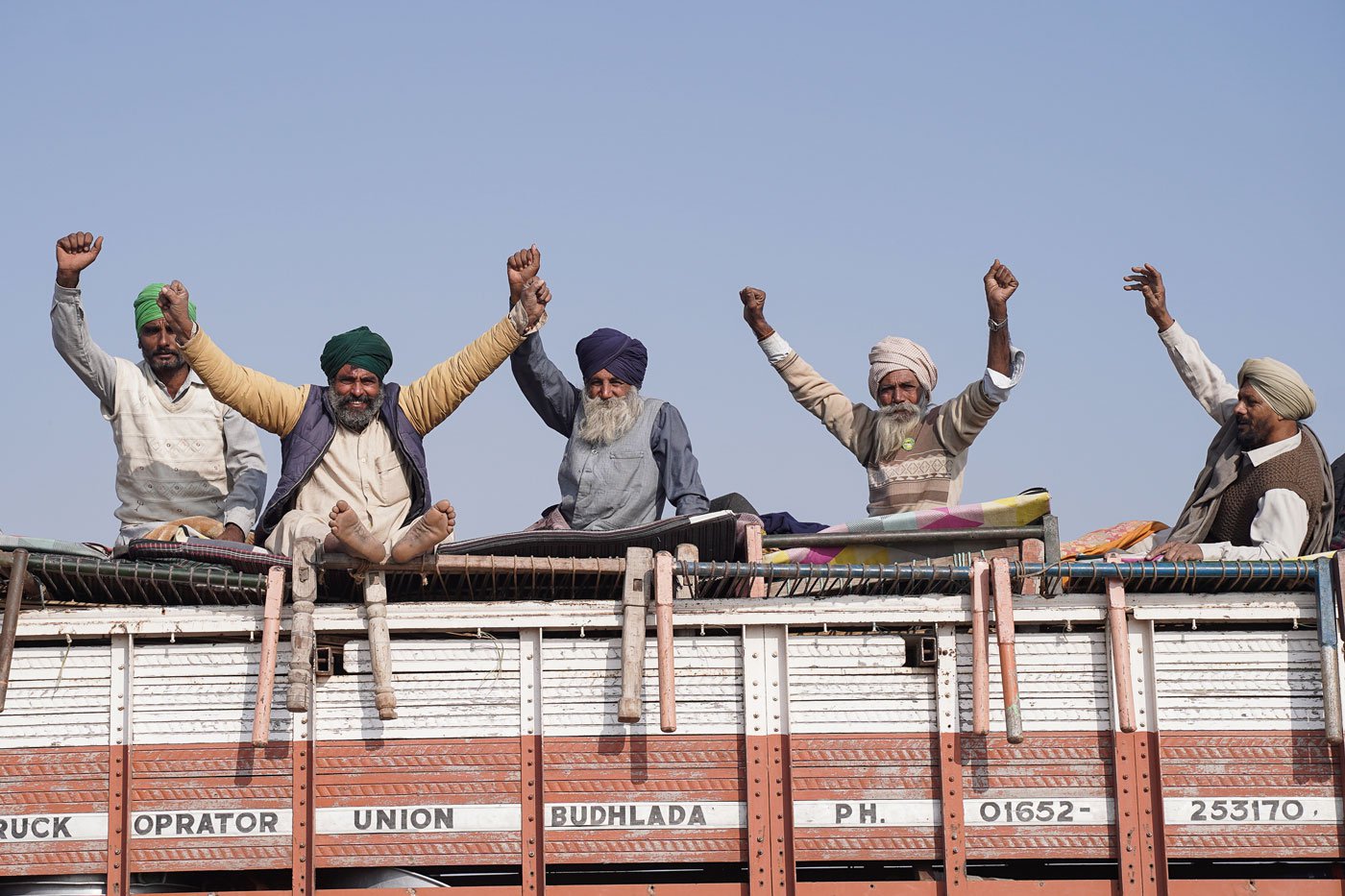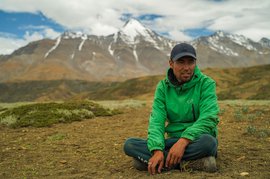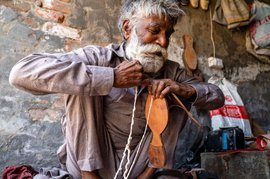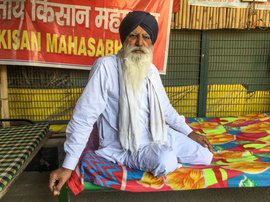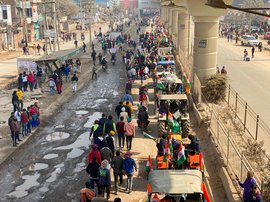When they were removing the electricity cables on the morning of December 11, a shopkeeper nearby began crying. "He said that he will miss us and find it lonely without us here. It’s going to be difficult for us too. But the win of the farmers is a bigger celebration,” said Gurwinder Singh.
It was around 8:15 a.m. when Gurwinder and other farmer from his village began dismantling their makeshift tents at the Tikri protest site in West Delhi. At times, they used a wooden slab to break the bamboo joints, sometimes they used bricks to break the base of the structures. In 20 minutes it all turned to a heap, and they stopped for a tea and
pakoda
break.
“We built these shelters with our hands, and now with our own hands we are removing them,” added 34-year-old Gurwinder, whose family cultivates wheat, paddy and potatoes on six acres in Dangian village of Punjab’s Ludhiana district. “We are happy to be returning home victorious, but there is sadness too of leaving the relationships we have built here.”
“There was nothing here at the start of the protest. We all used to sleep on the roads, and then we made this home,” said Deedaar Singh, 35, who is from the same village in Ludhiana district, where he cultivates wheat, paddy, potatoes and green vegetables on a seven-acre farmland. “We have learnt a lot here, especially the feeling of brotherhood among all of us during our stay here. All governments only make us fight. But when all of us – from Punjab, Haryana, Uttar Pradesh – gathered here we realised we all are one.”
“We have elections in Punjab and we will vote for the right person,” added Gurwinder. “We will vote for the one who holds our hand [supports us]. We will not let those come to power who betray us,” Deedaar said.
![It’s difficult for us [to leave]. But the win of the farmers is a bigger celebration', said Gurwinder Singh.](/media/images/02a-Image-33-ST.max-1400x1120.jpg)
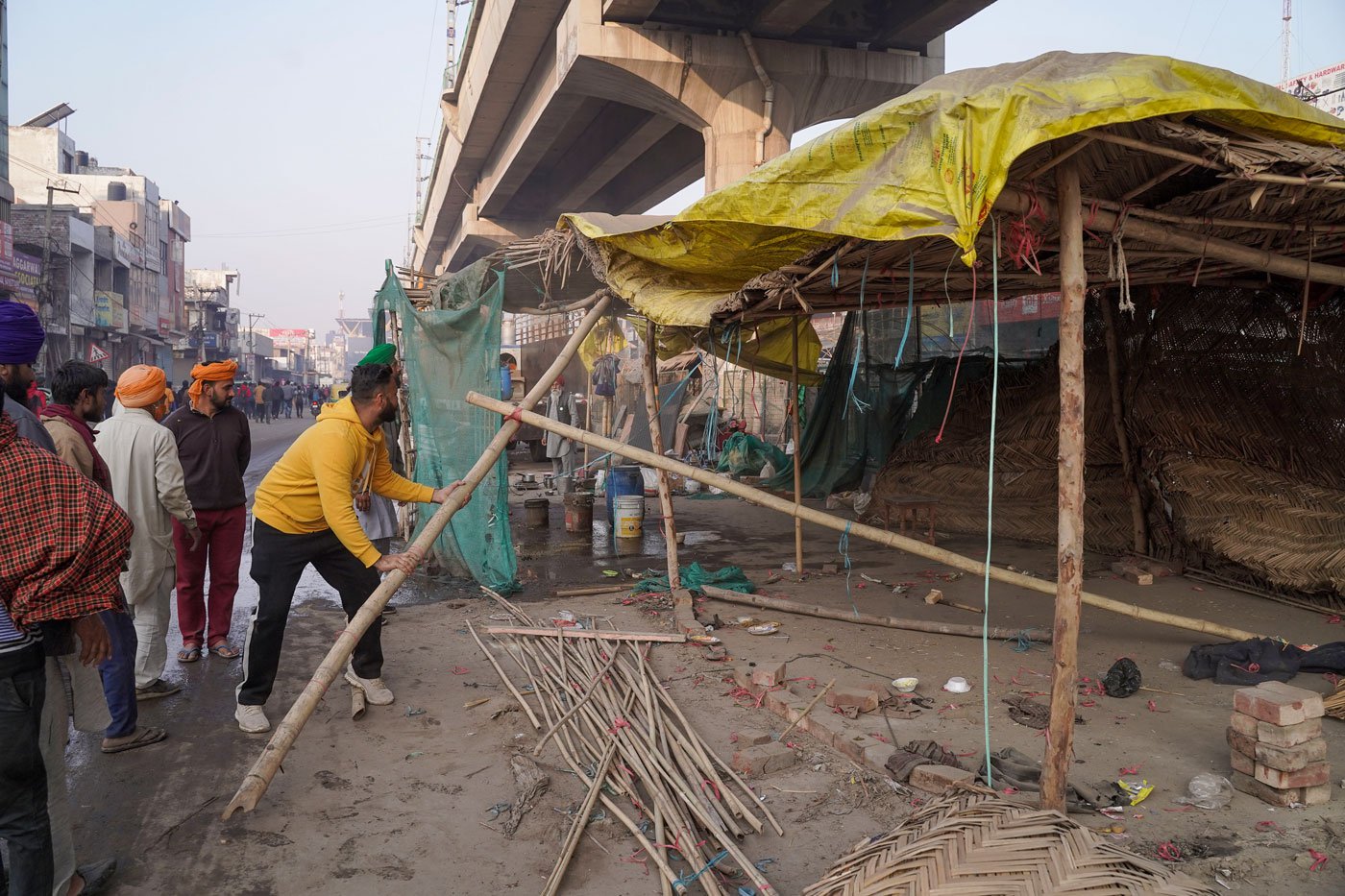
Left: 'It’s difficult for us [to leave]. But the win of the farmers is a bigger celebration', said Gurwinder Singh. Right: Farmer from his village in Ludhiana district dismantling their Tikri settlement
On December 9, the Samyukt Kisan Morcha (SKM), which comprises around 40 protesting farm unions, had announced they will suspend the year-long farmers’ agitation at the borders of Delhi, after the government repealed the three contentious farm laws and agreed to other demands.
Other major issues however remain – such as a guaranteed minimum support price (MSP) for crops, concerns about farm debt and more, and on these the SKM has decided to continue talks with the centre.
“We have only suspended this protest, not terminated it. Just as soldiers go on leave, we farmers are also going on leave. We will return if this government forces us to,” said Deedaar.
“If this government troubles us [over MSP and other pending farm issues] we will return again exactly how we came the first time,” Gurwinder added.
A few metres from the Dangian village protesters’ cluster, Satbir Godara and others from Dhani Bhojraj village of Haryana’s Fatehabad district had just completed loading a small truck with two portable fans, water drums, two air coolers, tarpaulin and iron rods from their settlement.
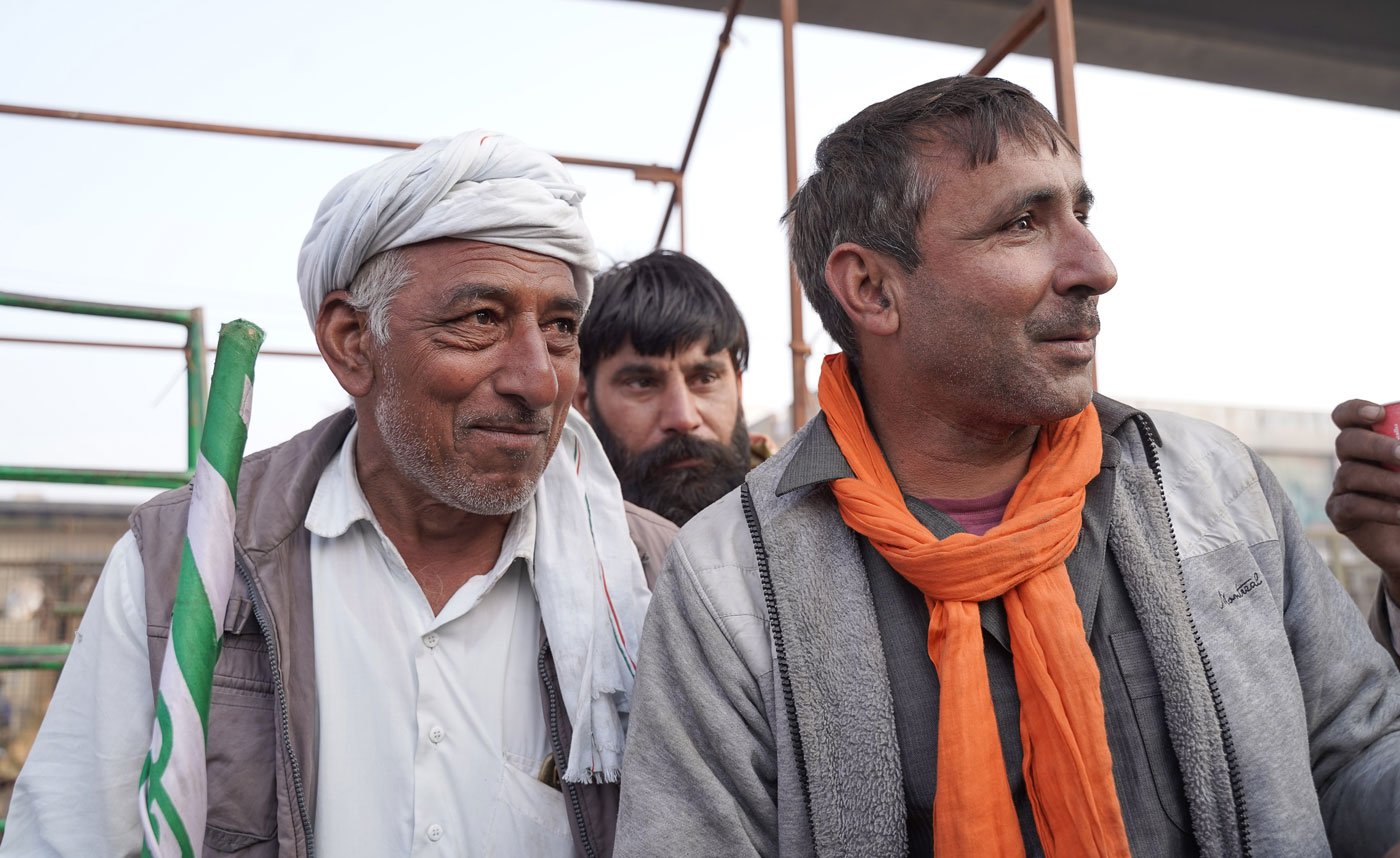
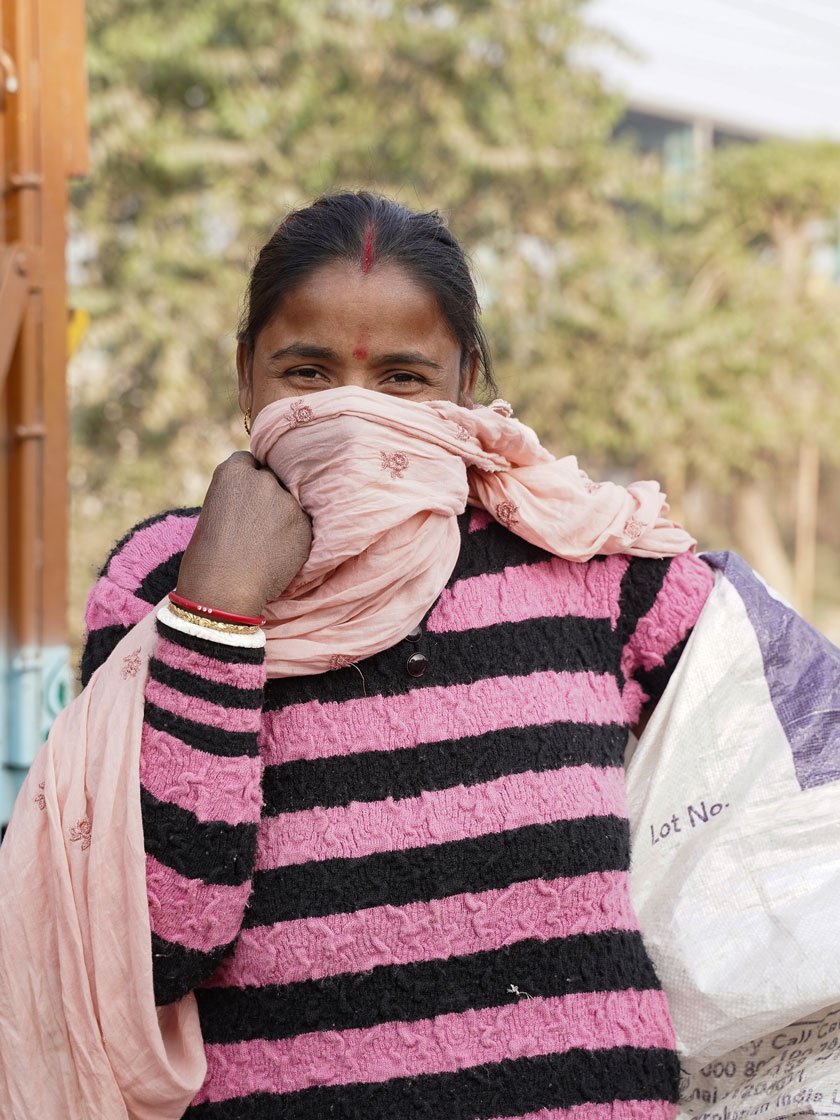
Left: 'We will return if we have to fight for MSP. Our andolan has only been suspended', said Satbir Godara (with orange scarf). Right: 'When we would come here to collect waste, they fed poor people like us two times a day', said Kalpana Dasi
“We called for this truck from another farmer in our village and have only paid for the diesel,” said 44-year-old Satbir. “All these things will be unloaded near the Dhani Gopal chowk in our district. What if we again have to sit for a similar struggle? Then we will be ready for it. Not all our demands have been met. So we are keeping all these things packed in one place. We have now learnt how to teach the government [a lesson].” With that, everyone around broke into laughter.
“We have given time to the government. “We will return if we have to fight for MSP. Our
andolan
[protest] has only been suspended,” Satbir added. “This was a historic year for us. We faced water cannons and tear gas, boulders were placed and roads were broken to stop us. We faced everything and reached Tikri.”
By 9 a.m. on Saturday, December 11, many of the farmers had left the protest site at Tikri. Those who were packed and ready began to move too. Men sat on the top in tractor-trolleys piled with mattresses,
charpais
, tarpaulin and various other items. Some were leaving in trucks, others in cars and Boleros.
Most of them were moving straight to take the Western Peripheral Expressway, while others were turning left on to the Delhi-Rohtak road (near Bahadurgarh city in Haryana) where the Bharatiya Kisan Union (BKU, Ekta Ugrahan) had been stationed.
On that road, Kalpana Dasi, a 30-year-old migrant from Pakur district of Jharkhand, who works as a waste-picker in Bahadurgarh, had come to collect waste from the protest site with her 10-year-old son Akash. She said that she knew that one day the protesting farmers had to return home, but was feeling bad. “When we would come here to collect waste, they fed poor people like us two times a day,” she said.
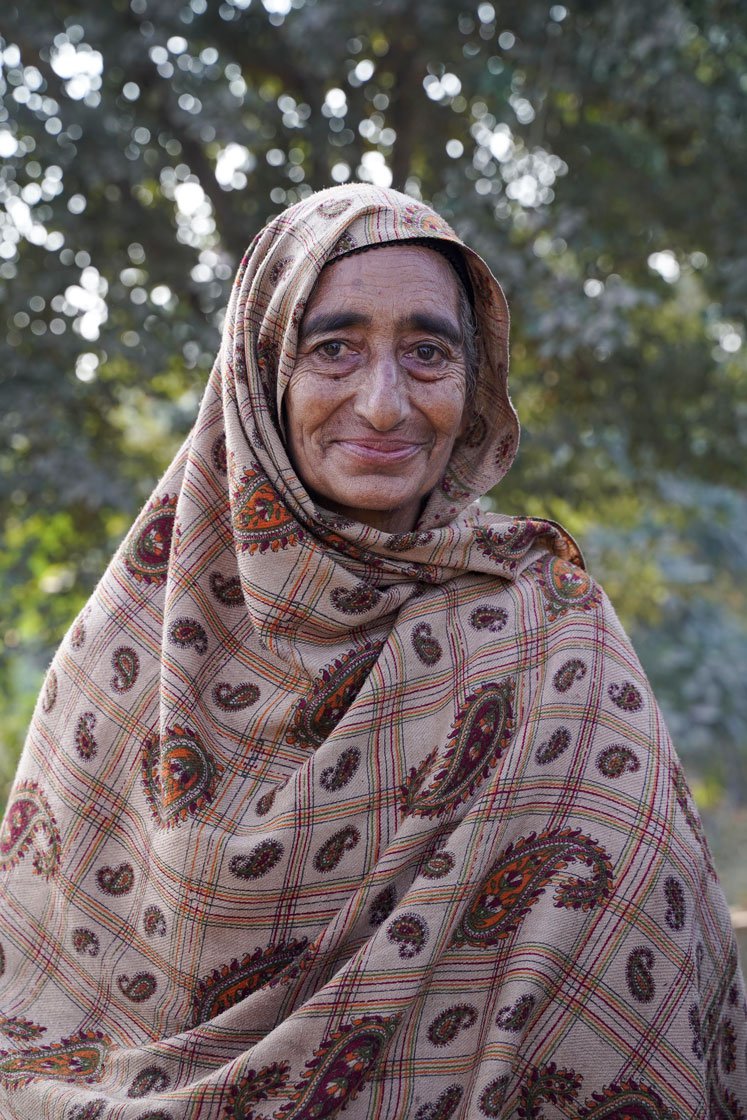
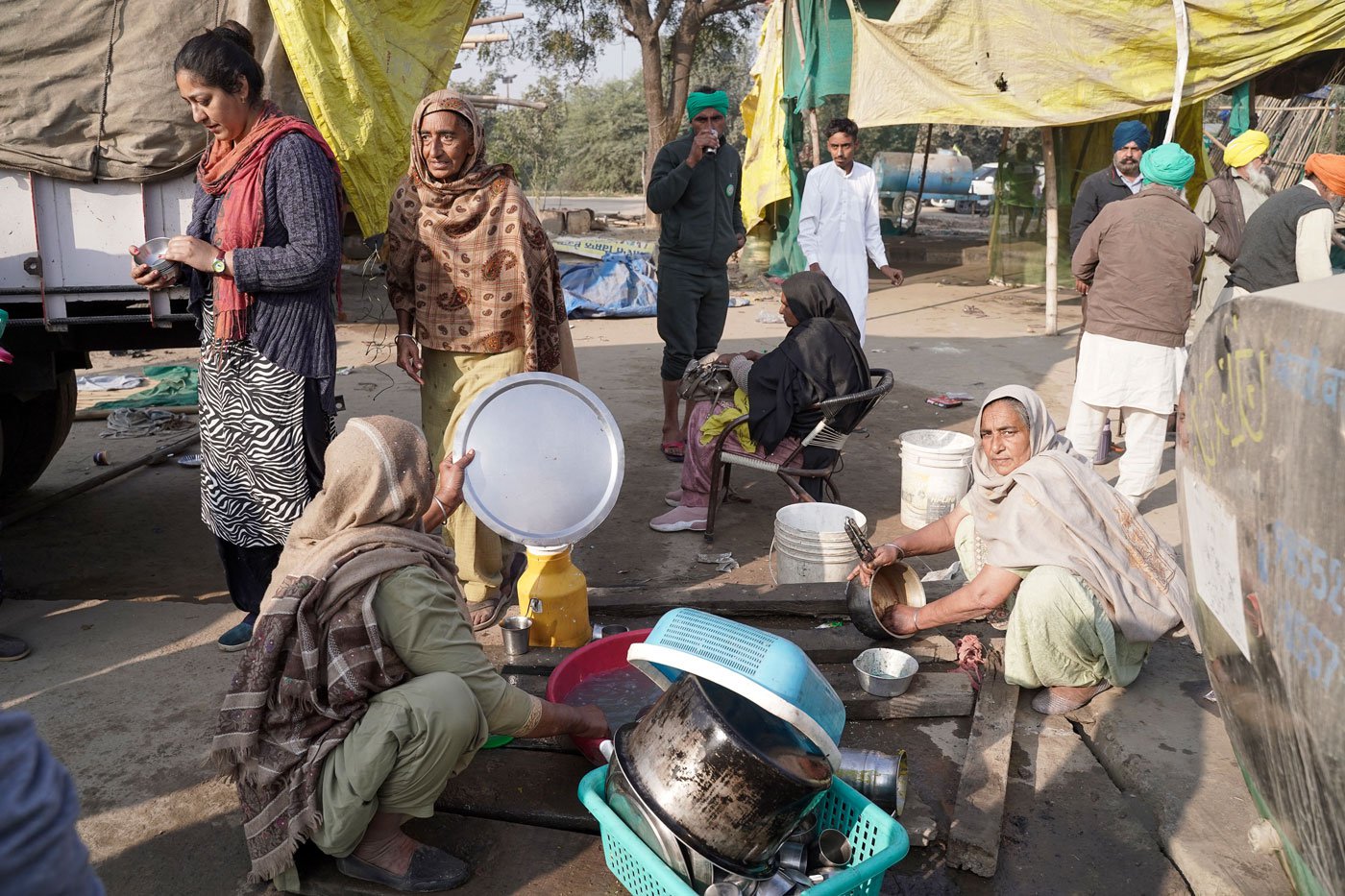
Left: 'Hundreds of tractors will first reach Buttar in Moga, two-three villages before ours. We will be welcomed there with flowers, and then we will finally reach our village', said Sirinder Kaur. Right: With other other farm protesters from her village washing utensils to pack in their tractor-trolley
The tractors on this road (heading towards Rohtak) were decorated with plastic and paper flowers, shiny scarves and ribbons, and union flags. We are taking away our tractors after adorning them, and will be moving like a celebratory wedding procession,” said Sirinder Kaur, 50, from Dala village of Moga district in Punjab. One tractor-trolley was loaded with her family’s mattresses, kitchen utensils and more, another trolley was being used by the men to travel, while the women boarded a canter truck.
“Hundreds of tractors will first reach Buttar in Moga, two-three villages before ours. We will be welcomed by all there with flowers, and then we will finally reach our village,” Sirinder added. On four acres in Dala village, her family cultivates paddy, wheat and chickpea. She comes from a family of freedom fighters, she said. And now [until December 11], “one of my brothers-in-law was protesting at Tikri, one at the Singhu border, and my family is here [at the Rohtak road in Bahadurgarh]. We are a family of fighters, and we have won this struggle as well. Our demand [to repeal the three farm laws] has been met, now we will do as our union [BKU Ekta Ugrahan] says.”
In another trolley nearby, Kiranpreet Kaur, 48, from Badhni Kalan village of Punjab’s, Moga district, was looking tired. “We have only slept for an hour. Since yesterday we have been packing,” she said. “There was a victory celebration which continued till 3 a.m.”
Back home, her family has 15 acres of land where they grow wheat, paddy, maize, mustard and potatoes. Here, she added, “Many learned how to peacefully protest, and that when they fight for their rights, they can win.”
Before leaving, Kiranpreet said, she and others cleaned every patch of land they had occupied on the roads. “I bowed to the land here. It gave us the space to protest. Only that land gives back which you worship.”
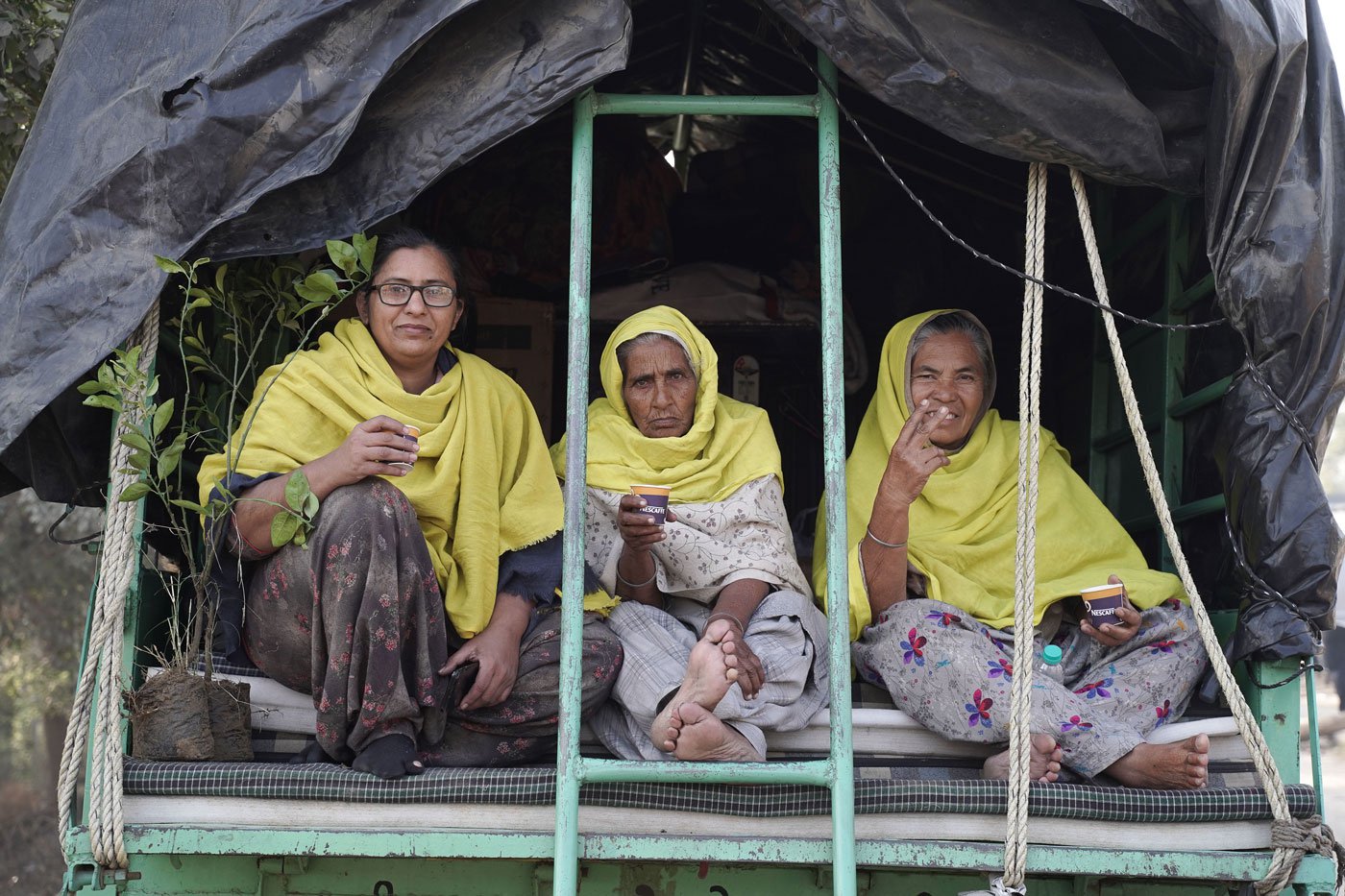
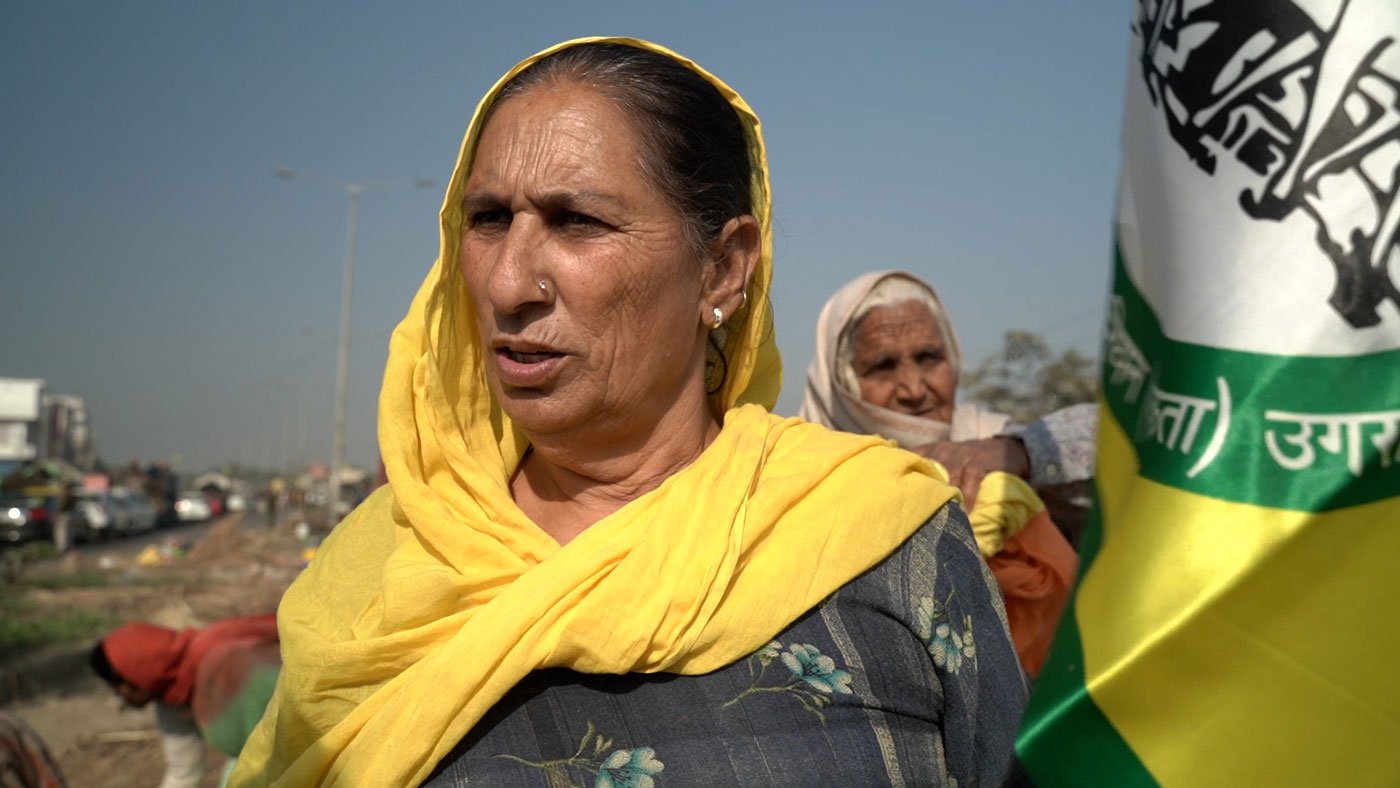
Left: Kiranpreet Kaur, Amarjeet Kaur, and Gurmeet Kaur, all from Badhni Kalan, ready to move in a village trolley. 'We have only slept for an hour. Since yesterday we have been packing. There was a victory celebration till 3 a.m.', said Kiranpreet. Right: 'Our villagers will welcome us', said Pararmjit Kaur, a BKU leader from Bathinda
Near the BKU’s main stage in Bahadurgarh, Paramjit Kaur, district women’s leader of Bathinda for the union, was busy trying to fit everything into trolleys. Paramjit, who is around 60, had also cleared the patch of land on the road divider where she had grown potatoes, tomatoes, mustard and green vegetables. ( See Tikri farmers: ‘We will remember all this for life’ .) “I cut them [the crops] off and gave the vegetables to the labourers here,” she said. “ We are taking only a few things back home with us. We have given away the pieces of wood, tarpaulin to the poor here to build their houses.”
Tonight, she added, our trolley will halt at any gurudwara along the way, and again start moving the next morning. “Our villagers will welcome us. We will celebrate a lot that we have saved our land. Our struggle is not yet over though. We will rest for two days and will then fight for our other demands from Punjab.”
As she spoke, a convoy of protesting farmers on their tractor-trolleys, trucks and other vehicles was passing by on their way home. The Haryana police had been deployed to manage the traffic. At the start of the protest site, not far from the Punjab Kisan Union’s stage, there was a JCB machine breaking the boulders that had been placed there last year to stop the farm protesters from entering Delhi.
By around 11 a.m., everything had been cleared from the Tikri grounds, only a few protesters remained, ready to move. The protest site which for a year had reverberated with chants of ‘Kisan Mazdoor Ekta Zindabad', ’was silent. The celebrations and chants will continue to echo across the farmers’ villages – where they are determined to keep up the fight.
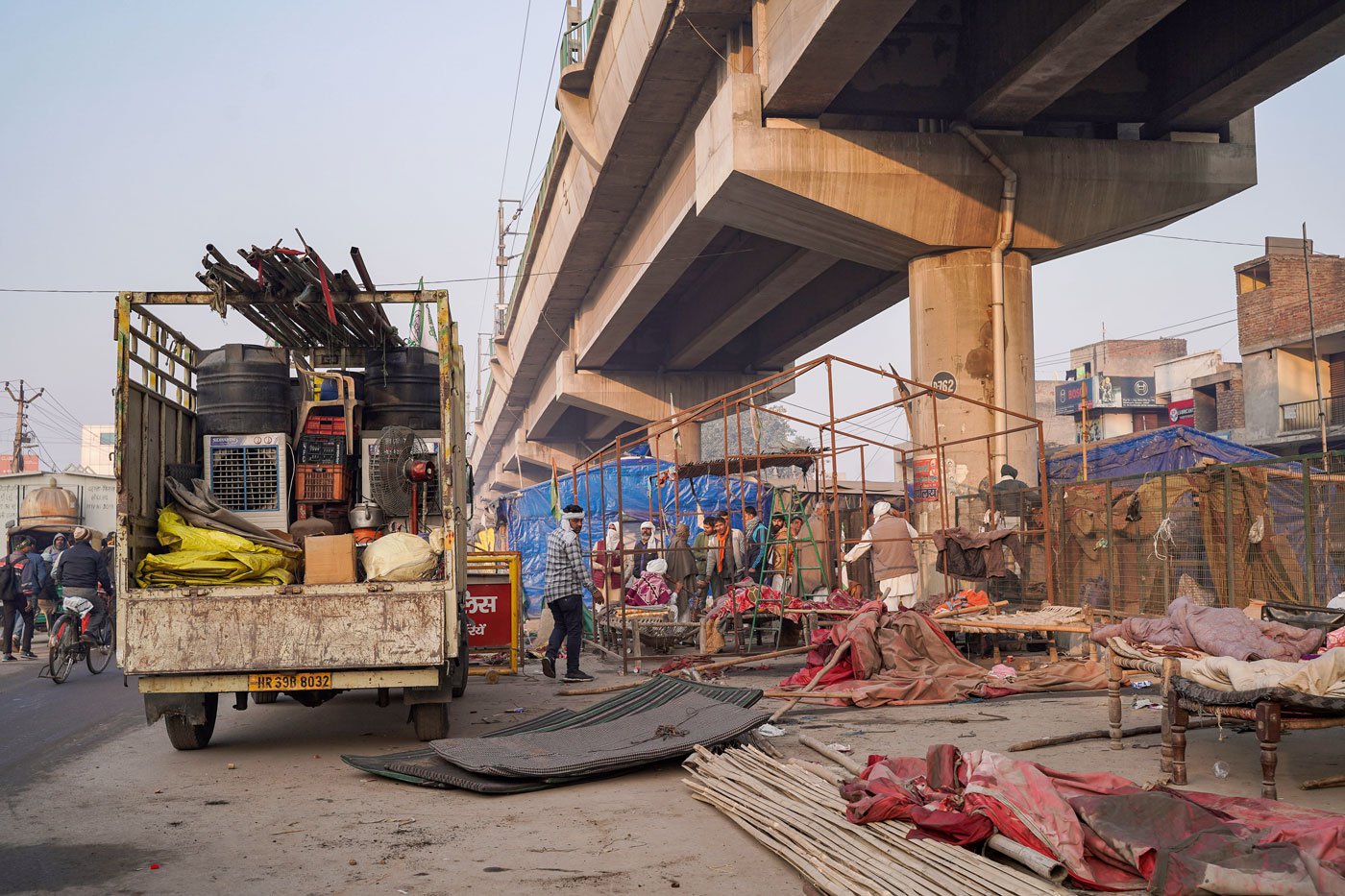
Farm protesters from Dhani Bhojraj village in Fatehabad district of Haryana dismantling their settlement and loading trucks at the Tikri protest site near West Delhi
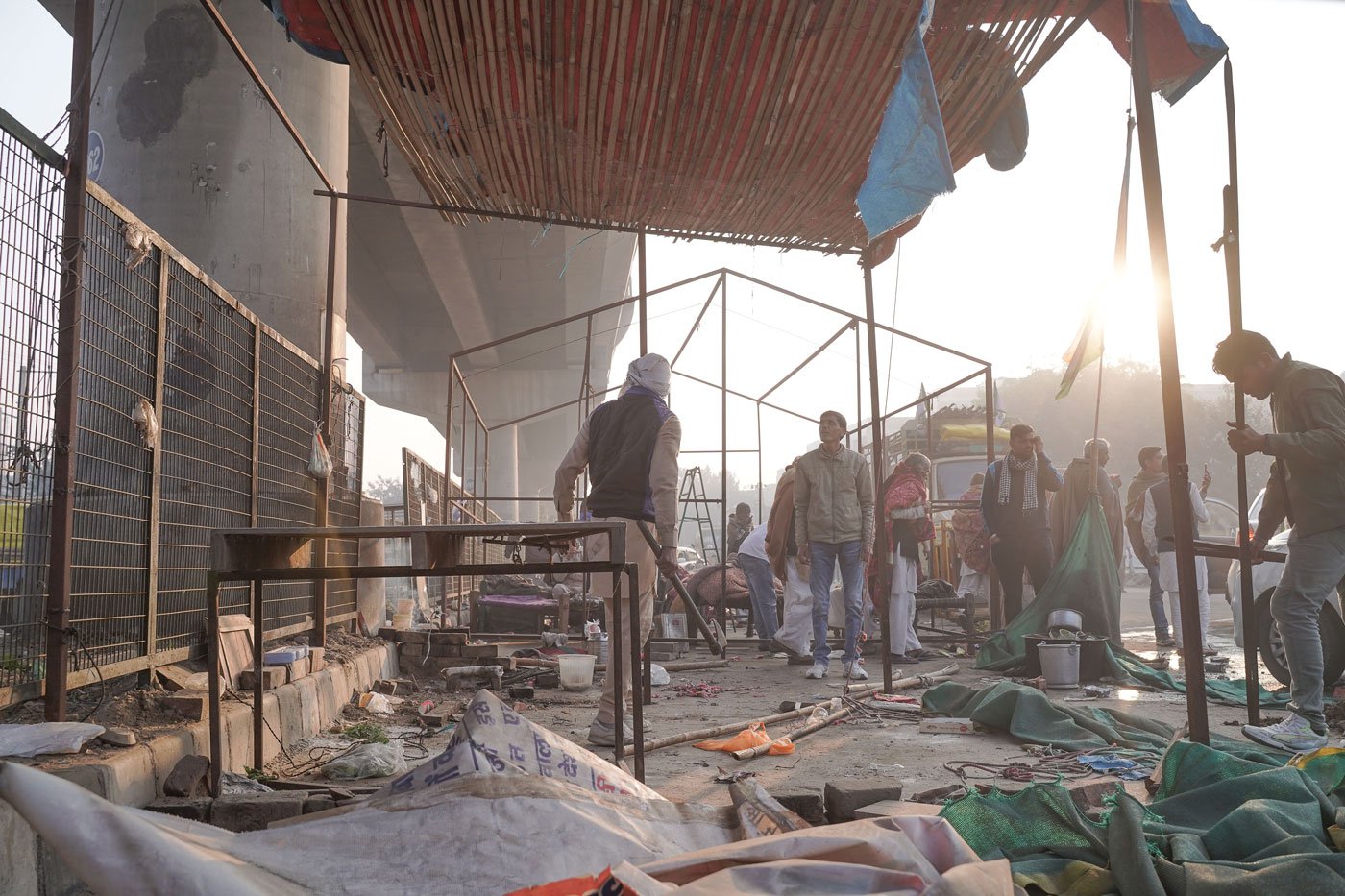
At times, they used a wooden slab to break the bamboo joints, sometimes they used bricks to break the base of the structures
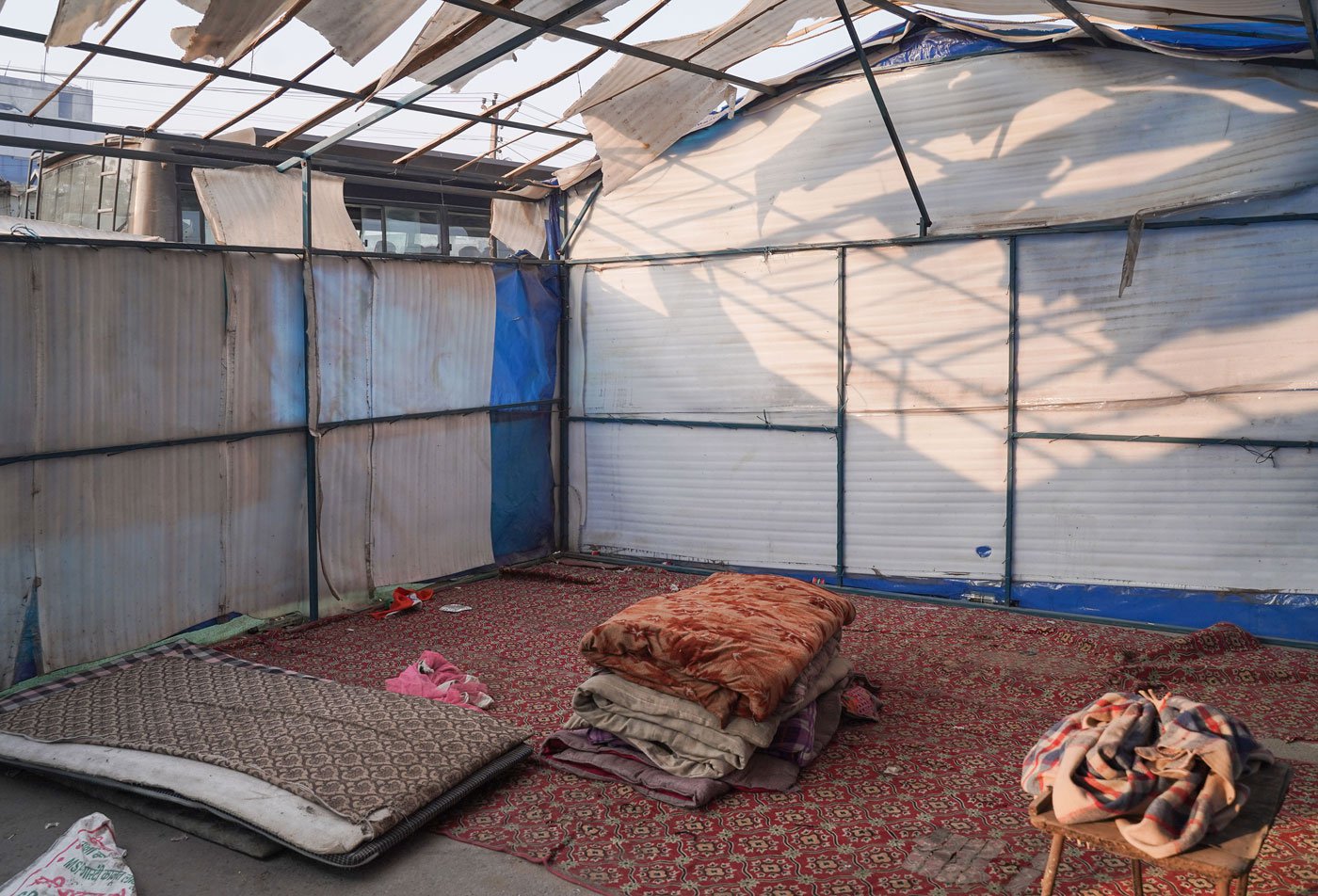
Packing for departure began the previous night and continued early in the morning on December 11: 'We built these shelters with our hands, and now with our own hands we are removing them'
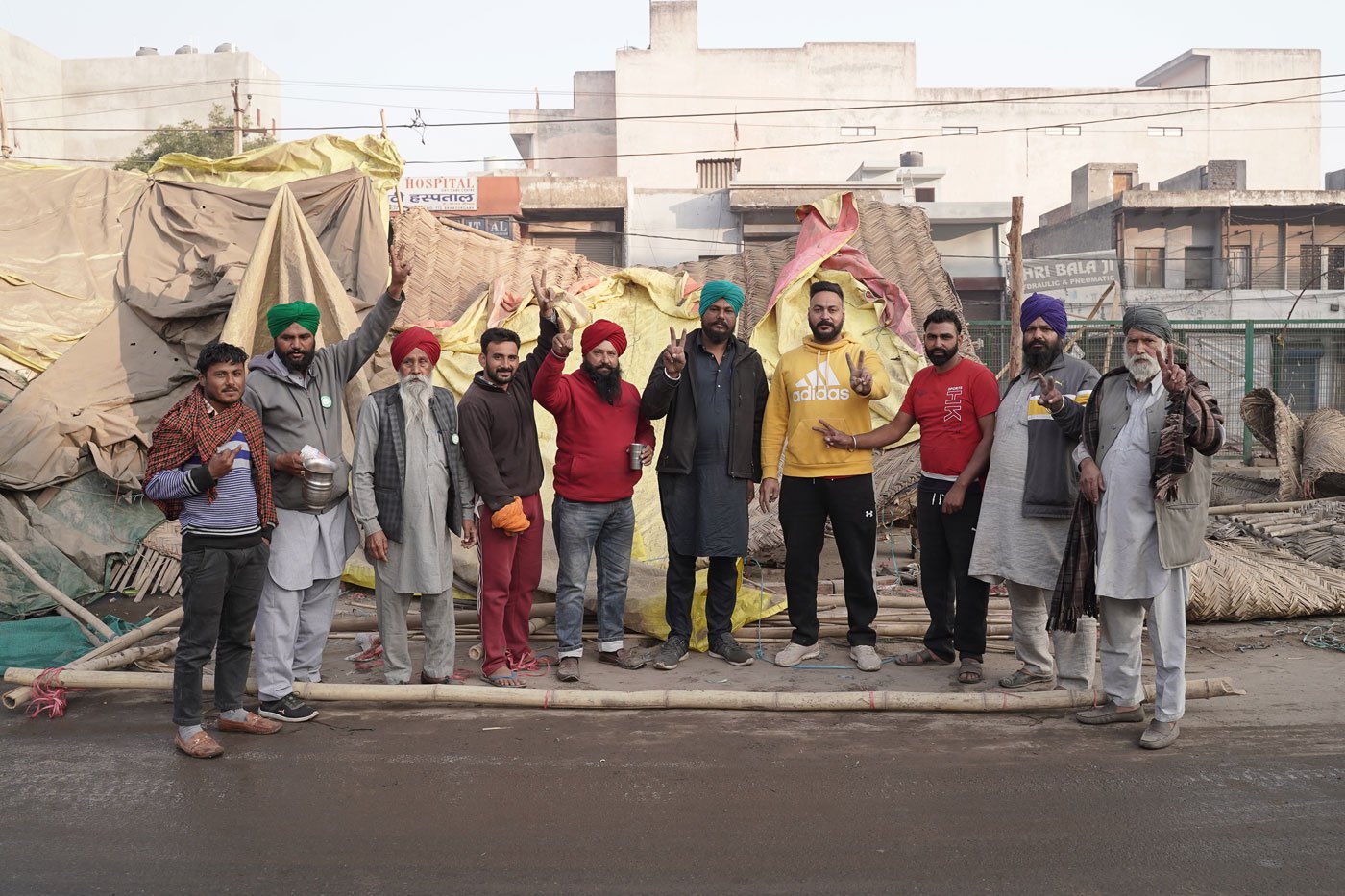
Gurwinder Singh (in turquoise turban, in the middle) and other protesters from his village outside their dismantled settlements at the Tikri protest site near West Delhi
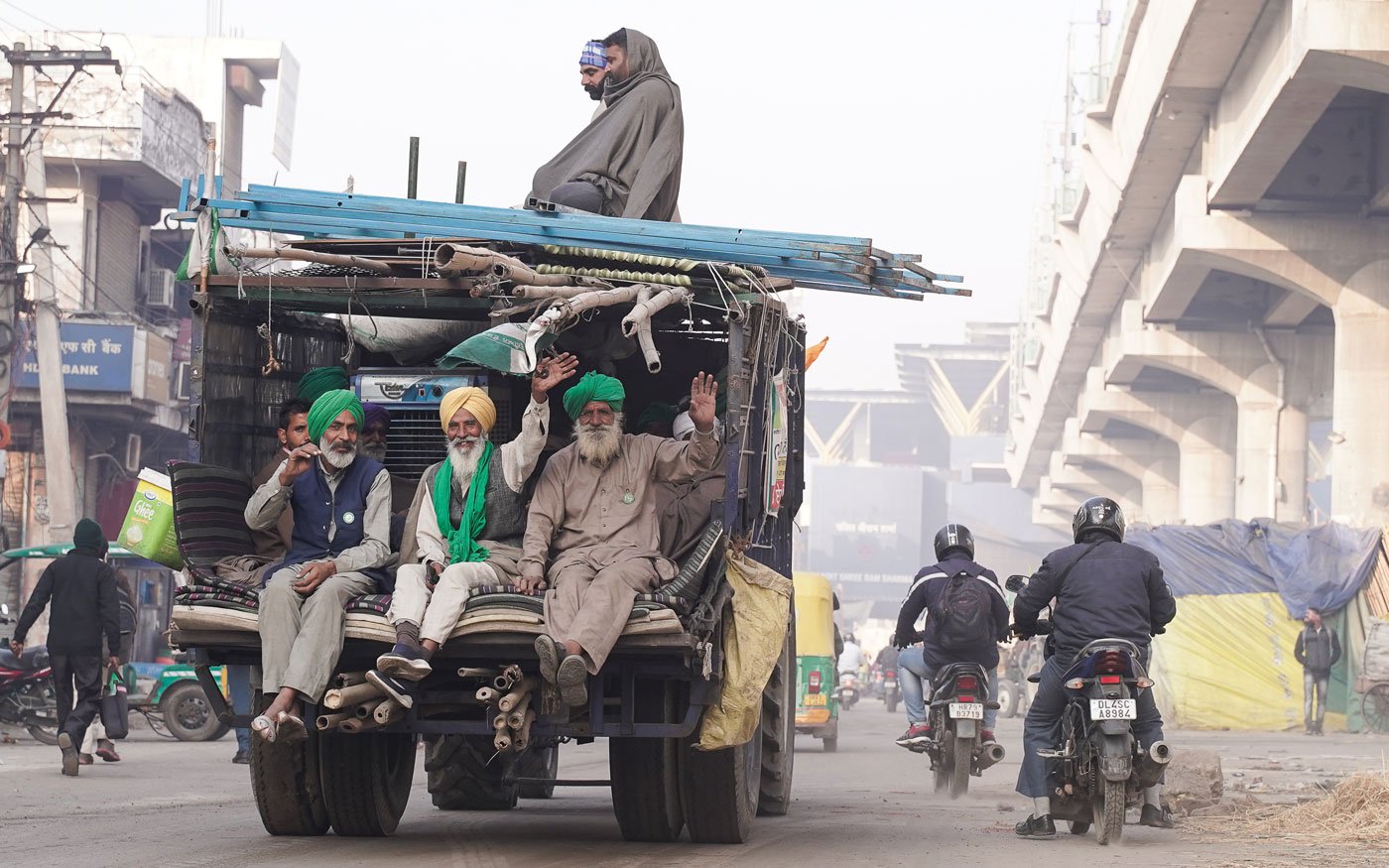
Men sat on the top in tractor-trolleys piled with mattresses,
charpais,
tarpaulin and various other items. Some were leaving in trucks, others in cars and Boleros
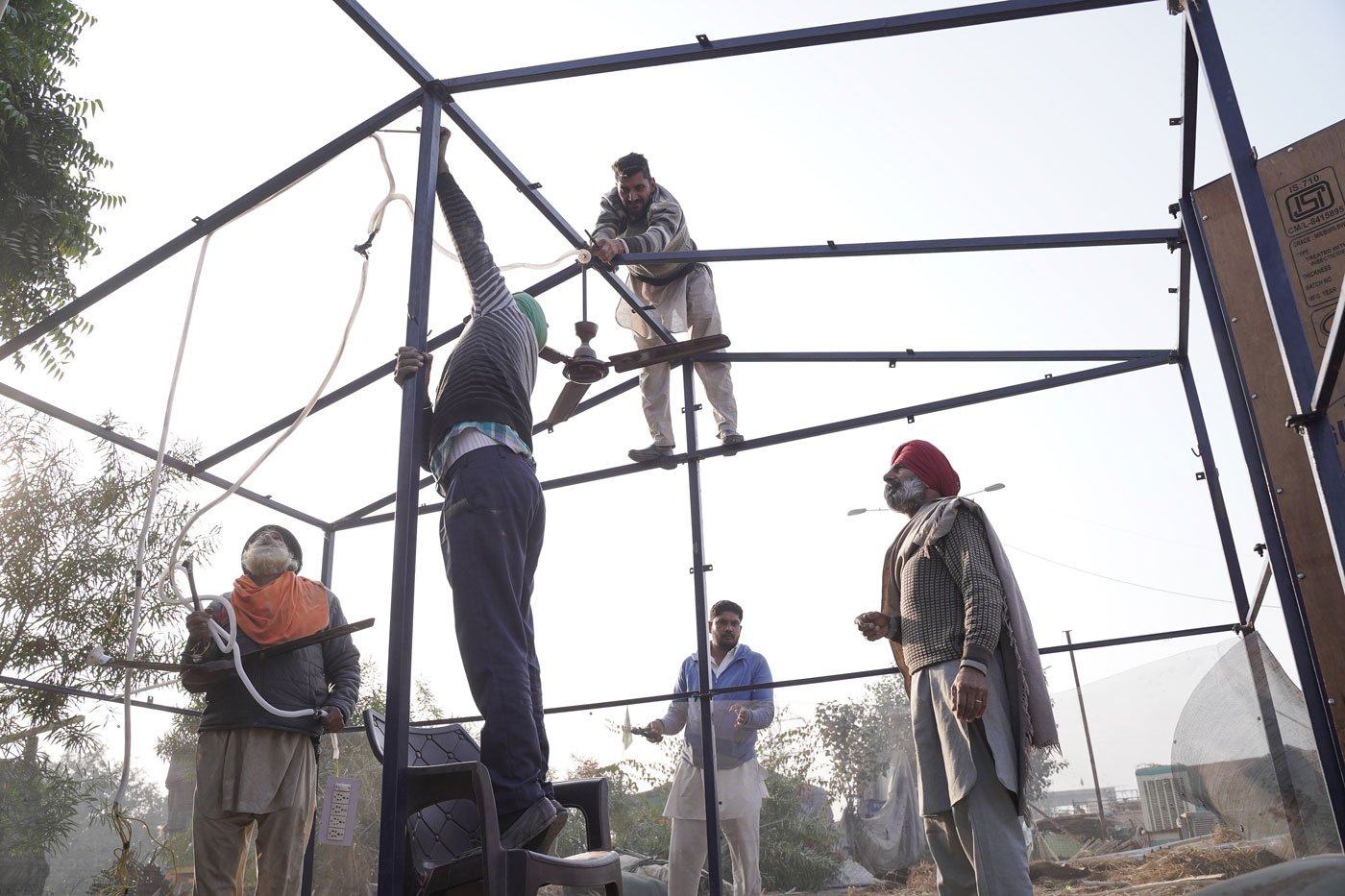
Farm protesters from Faridkot district of Punjab removing a fan and electricity connections from their settlement (home to 25 people) near Bahadurgarh city, Haryana. Jaskaran Singh (in blue sweater in the background) said: 'We are happy because our demands were met. We will return if necessary'
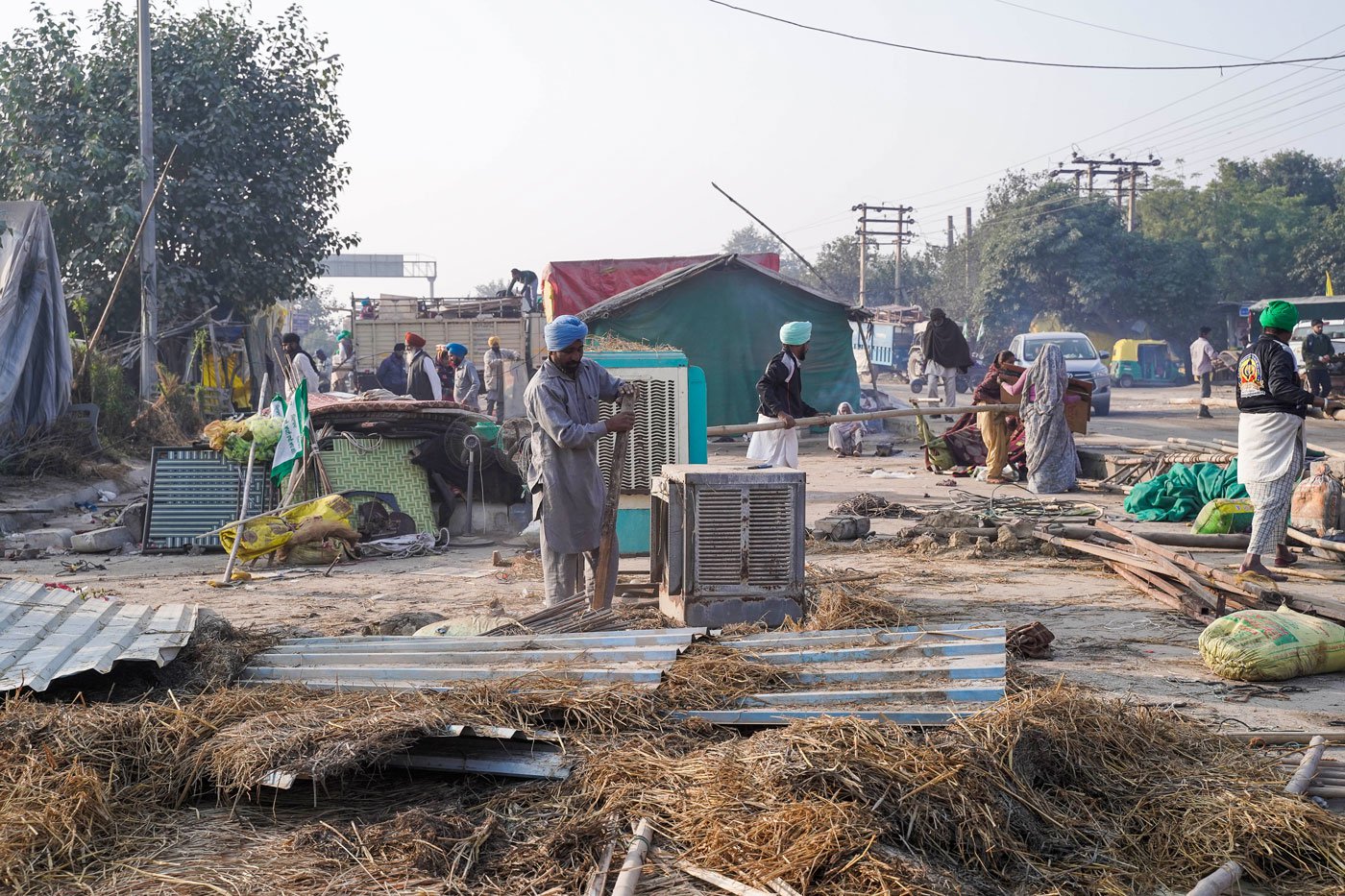
While clearing their makeshift settlements on the Rohtak road, farm protester gave local women labourers their wooden tables and other reusable items
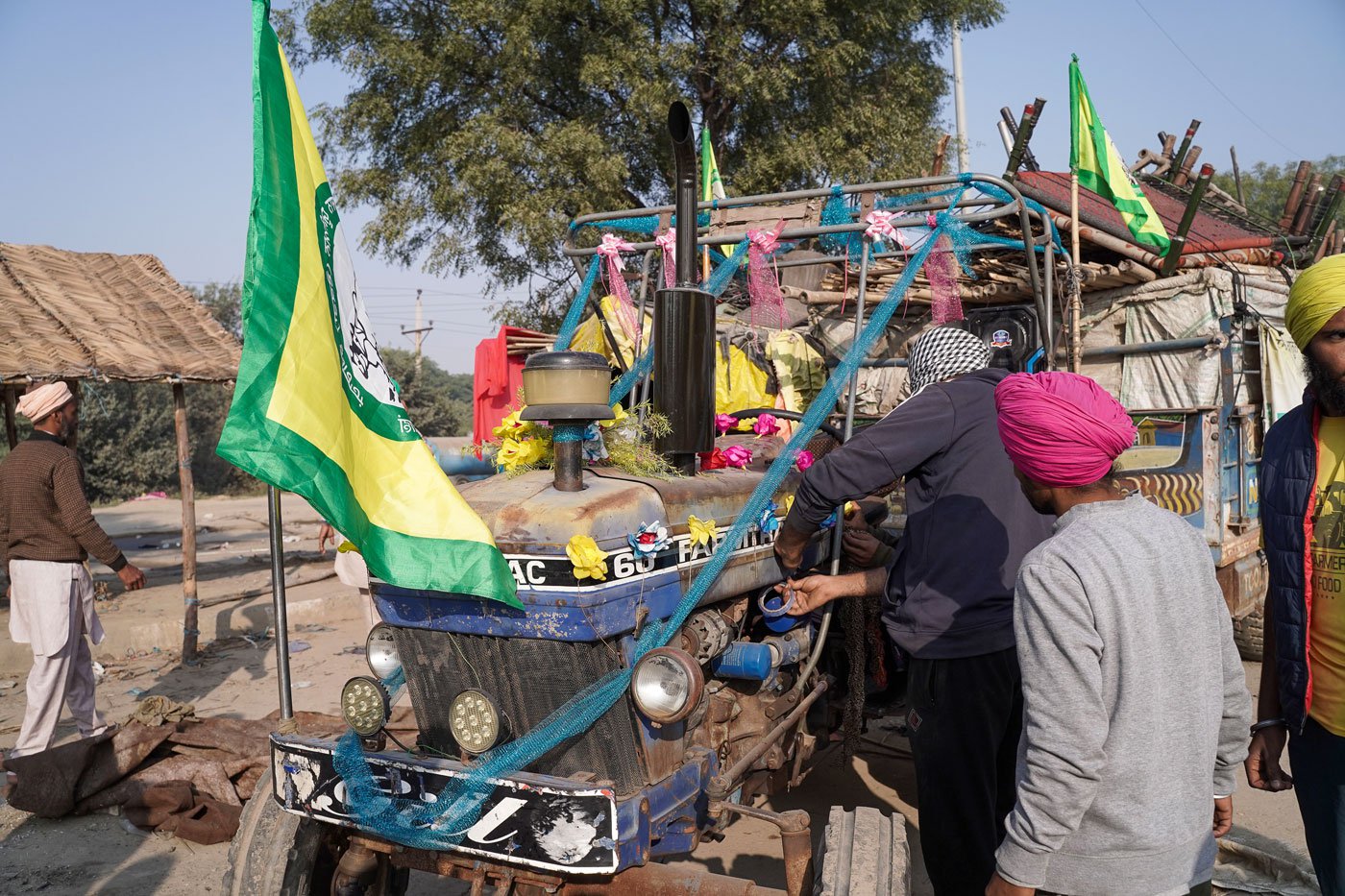
'We are taking away our tractors after adorning them, and will be moving like a celebratory wedding procession', said Sirinder Kaur
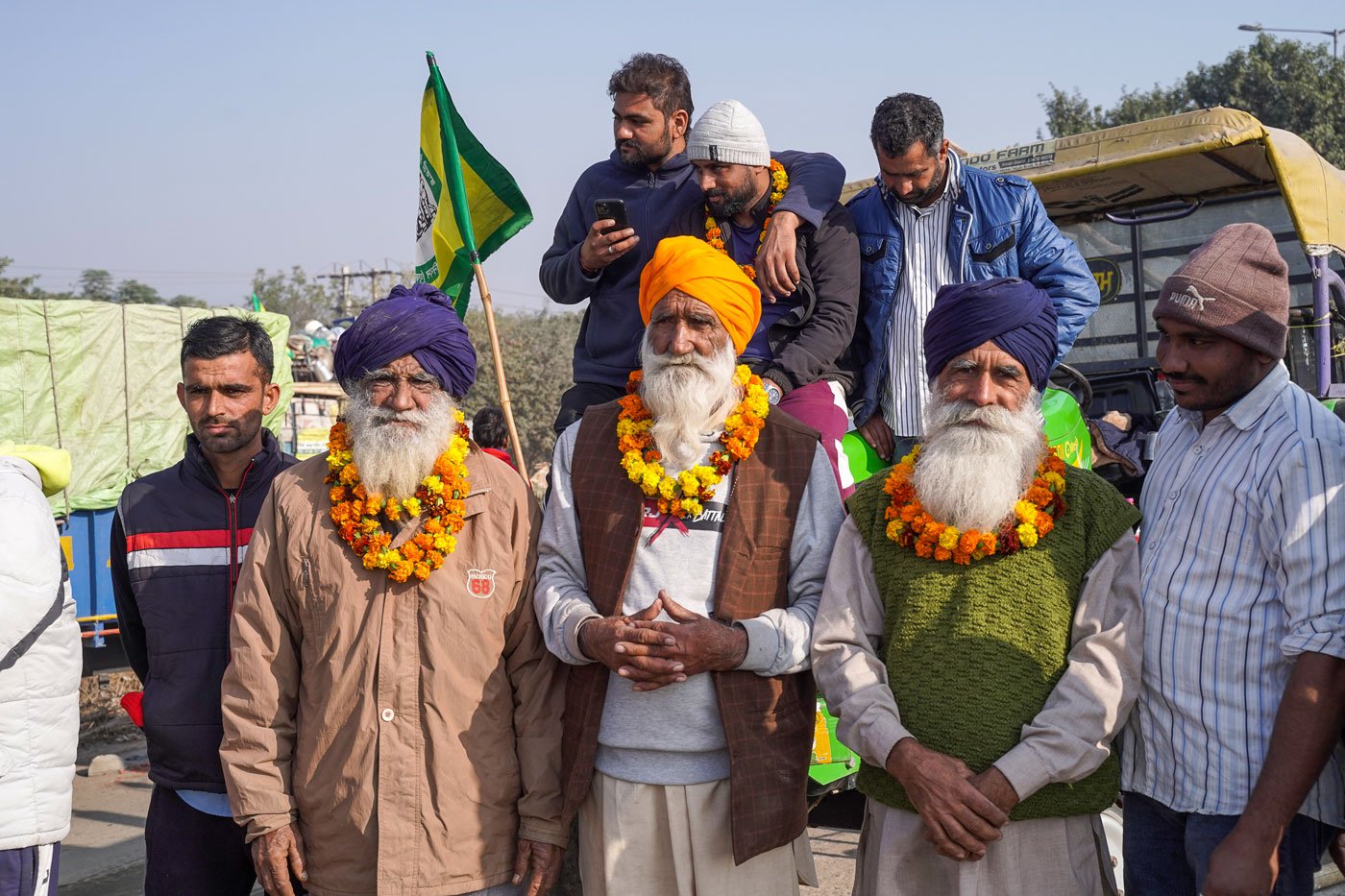
Farmers from Bagiana village of Faridkot district, Punjab, honoured those who were present on the first day of the protest as well as the last day of the protest
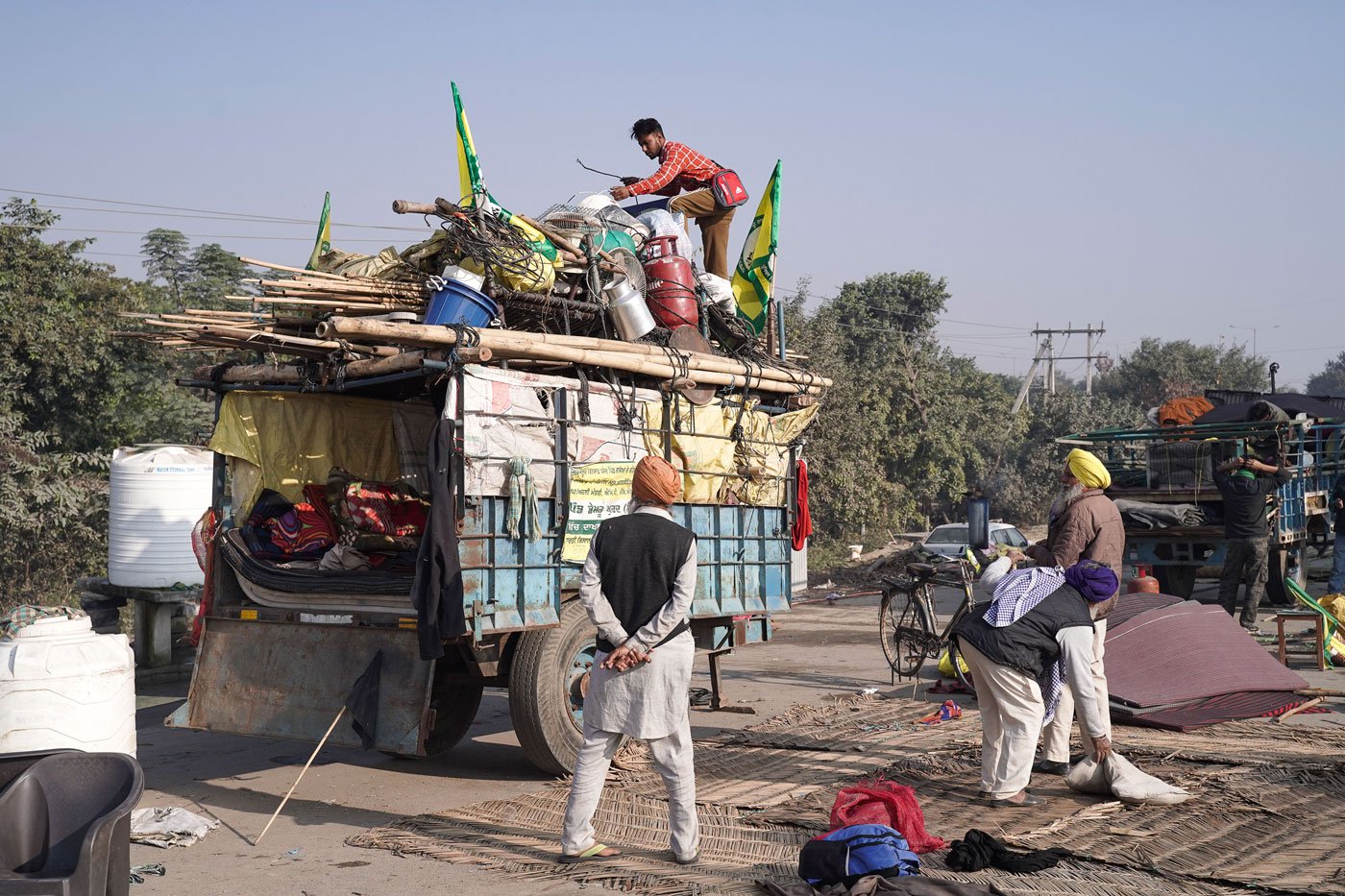
Protesting farmers from Demru Khurd village in Moga district of Punjab preparing to leave the protest site on Rohtak road
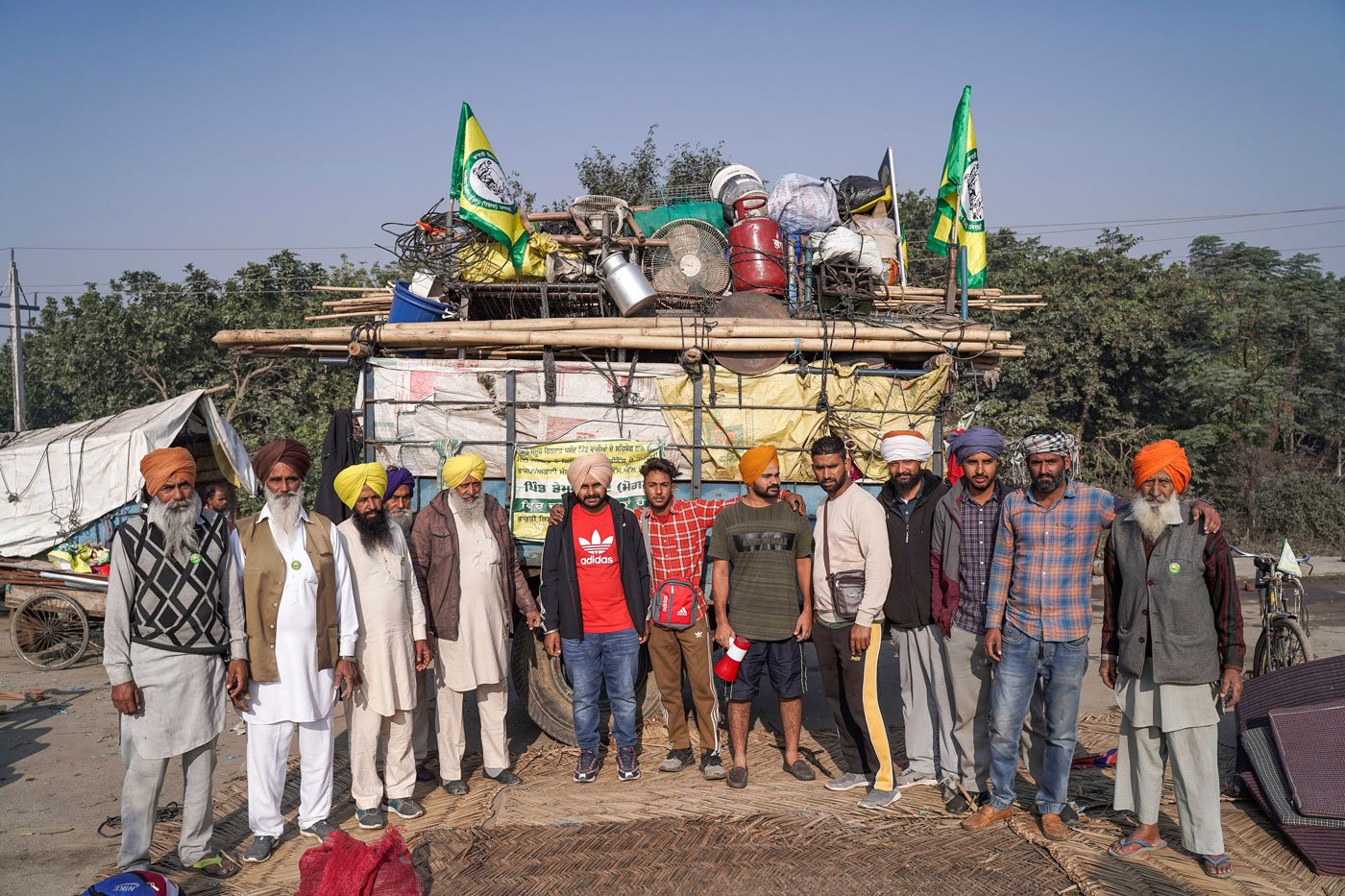
Protesting farmers from Demru Khurd village in Moga district: packing done, trucks loaded, it's time for a group photo
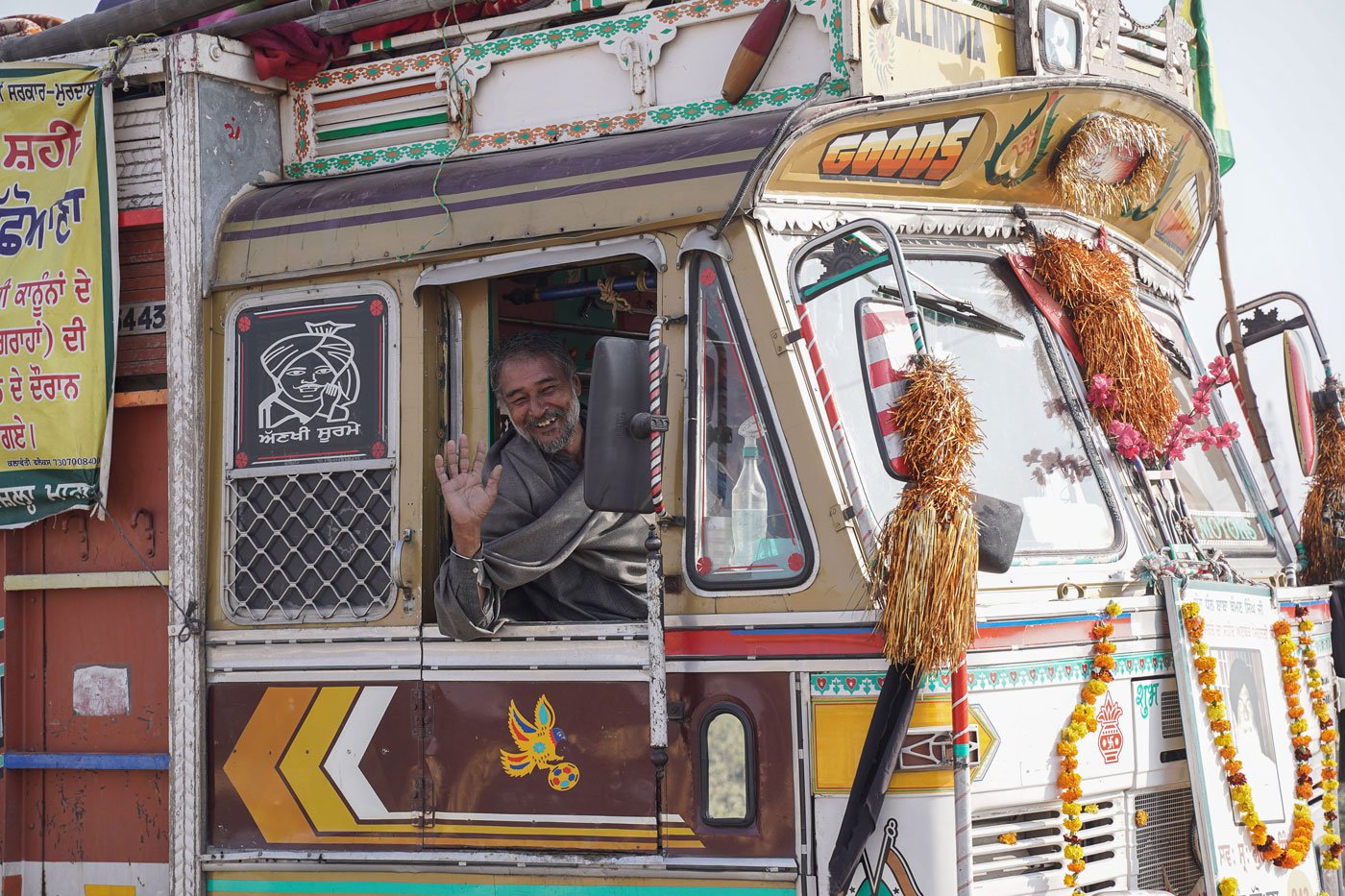
A farmer from Punjab's Mansa district leaving, all smiles, in a truck
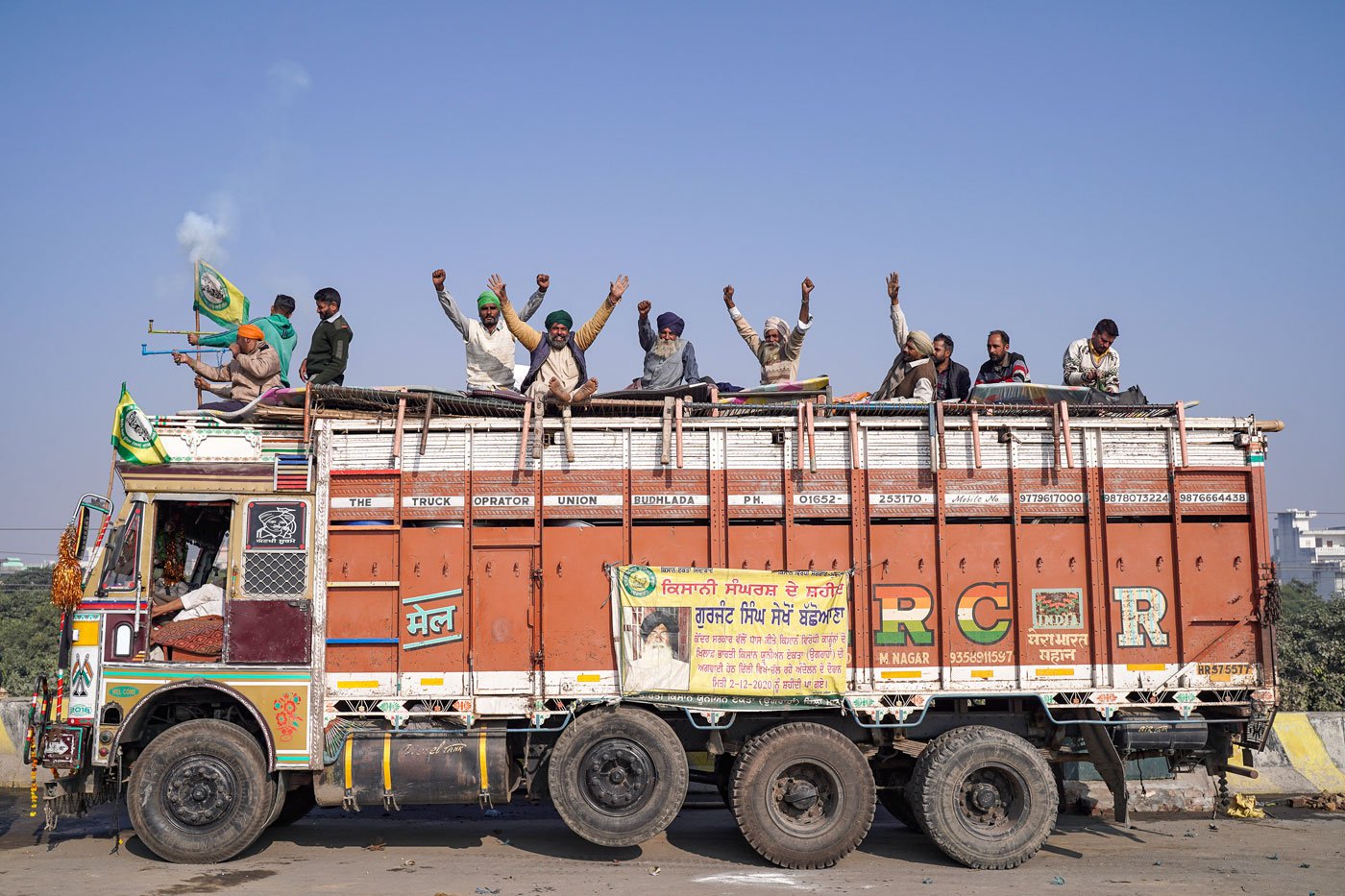
Farmers from Mansa district of Punjab leaving the protest site on a truck – triumphant and determined
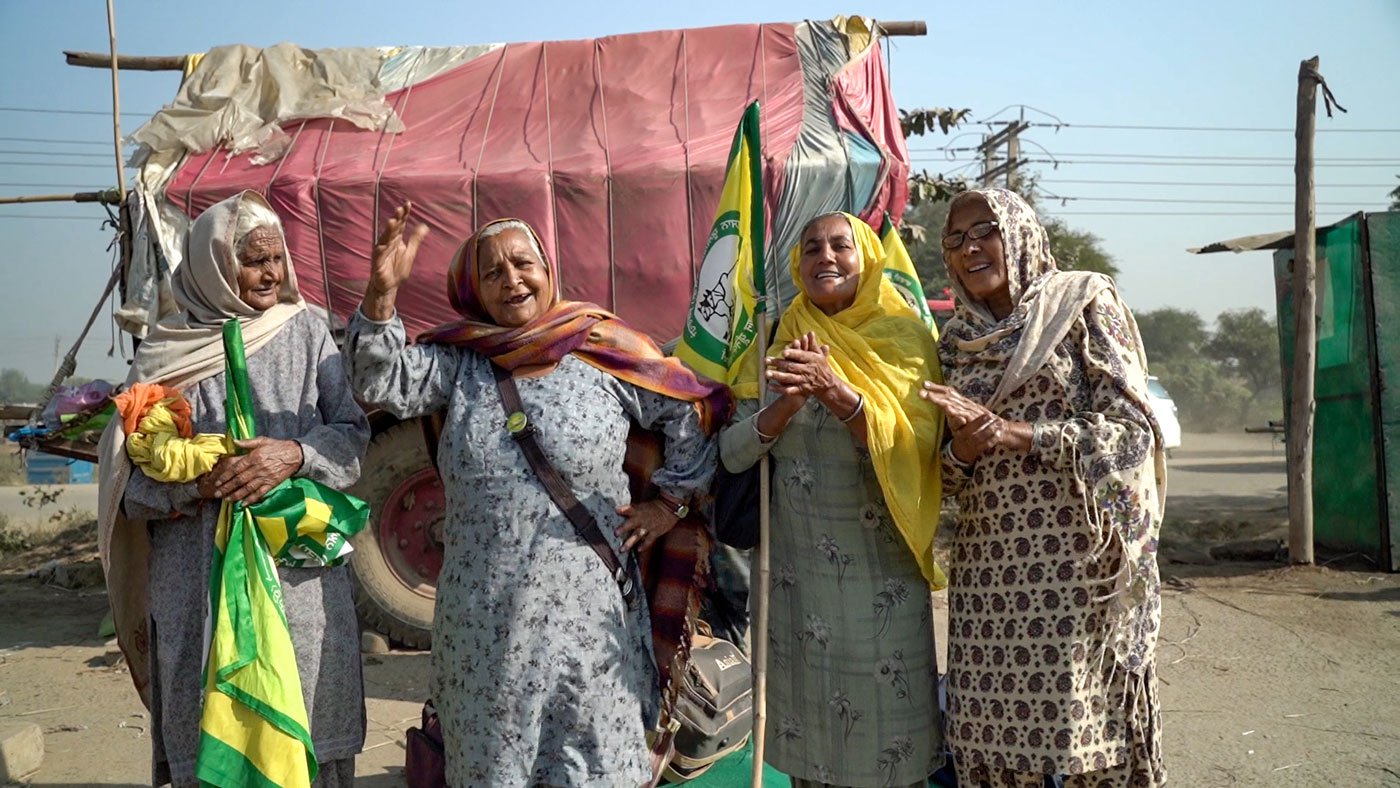
Left to right: Mukhteyar Kaur, Harpal Kaur, Bayant Kaur and Hamir Kaur doing the gidda (a celebratory dance) on Rohtak road before leaving the protest site
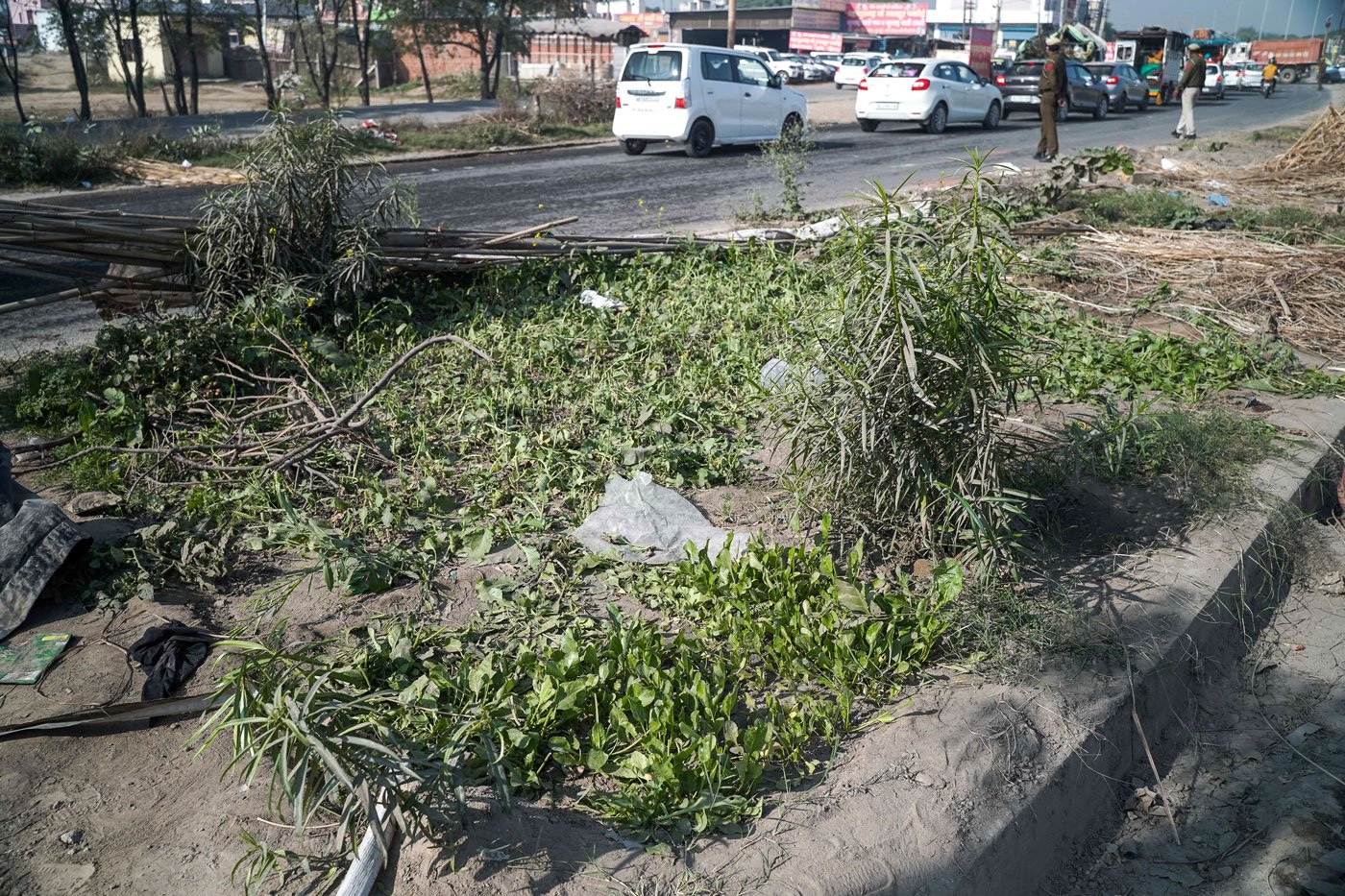
Paramjit Kaur, who had also cleared the patch of land on the road divider where she had grown potatoes, tomatoes, mustard and green vegetables, said, 'I cut them and gave the vegetables to labourers here'
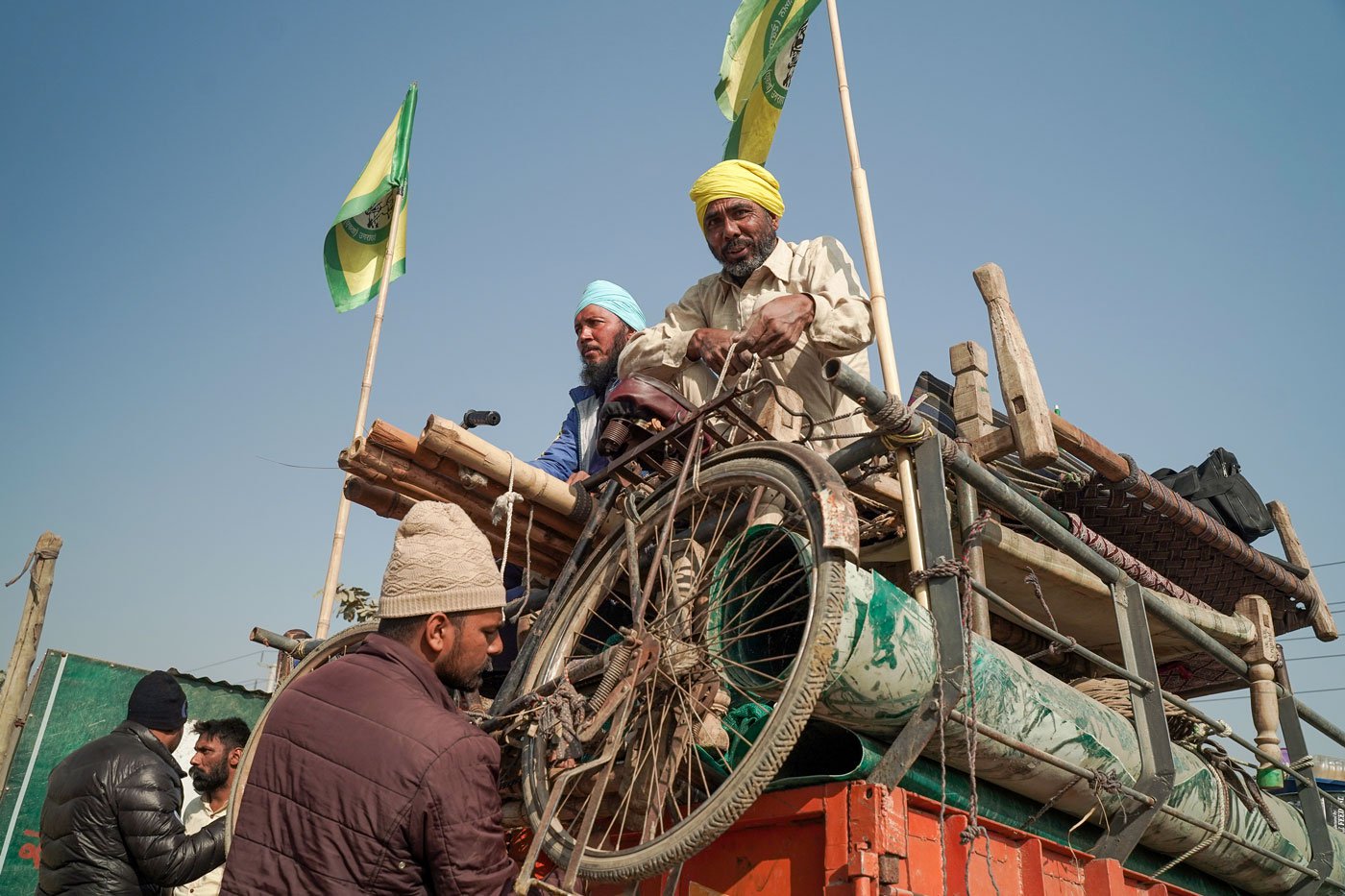
By around 11 a.m. on December 11, everything had been cleared from the Tikri grounds, only a few protesters remained, ready to move
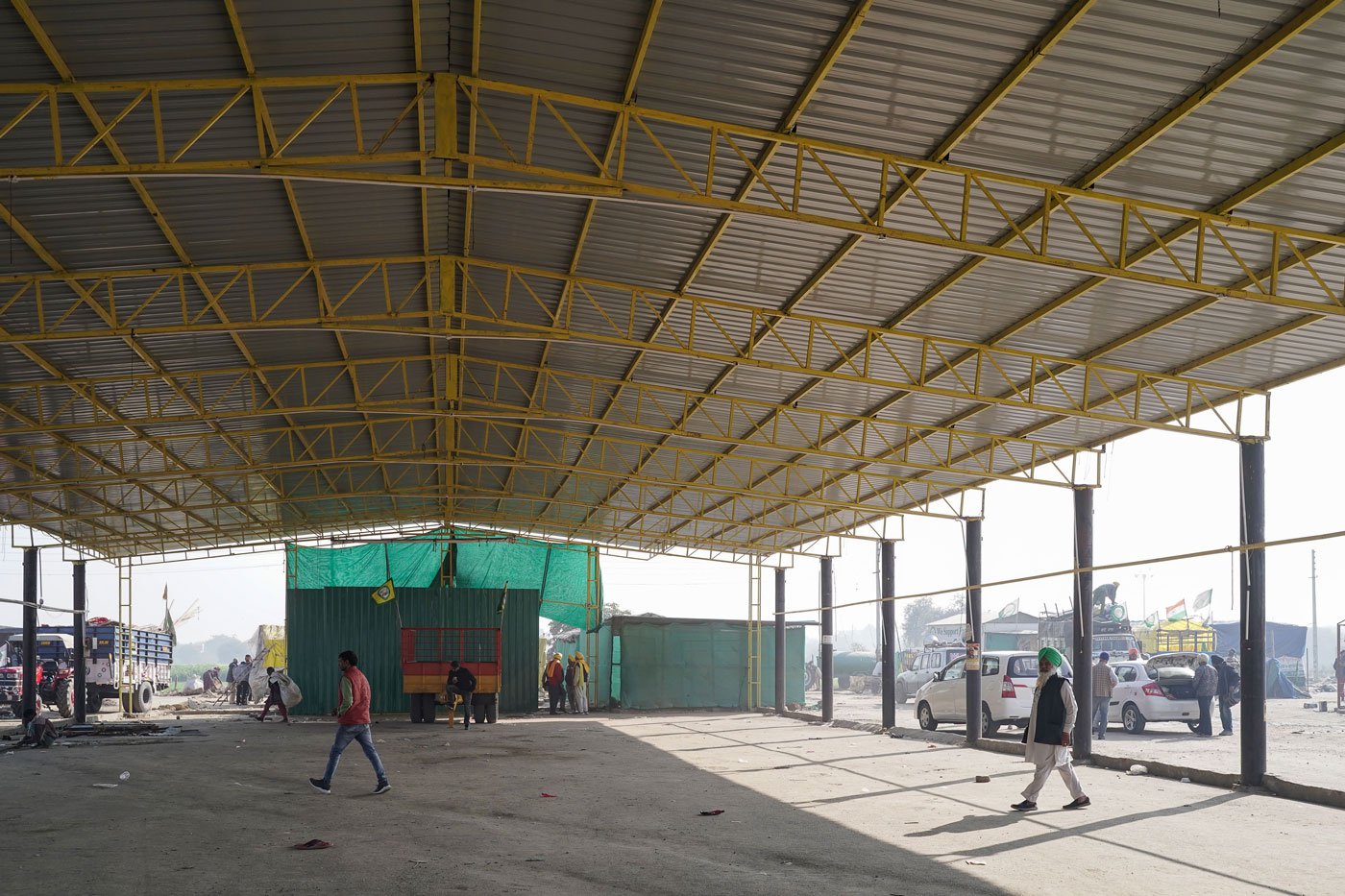
The main stage near Bahadurgarh city, Haryana, on December 11, of the Bharatiya Kisan Union (Ekta Ugrahan): bustling for a year, now silent
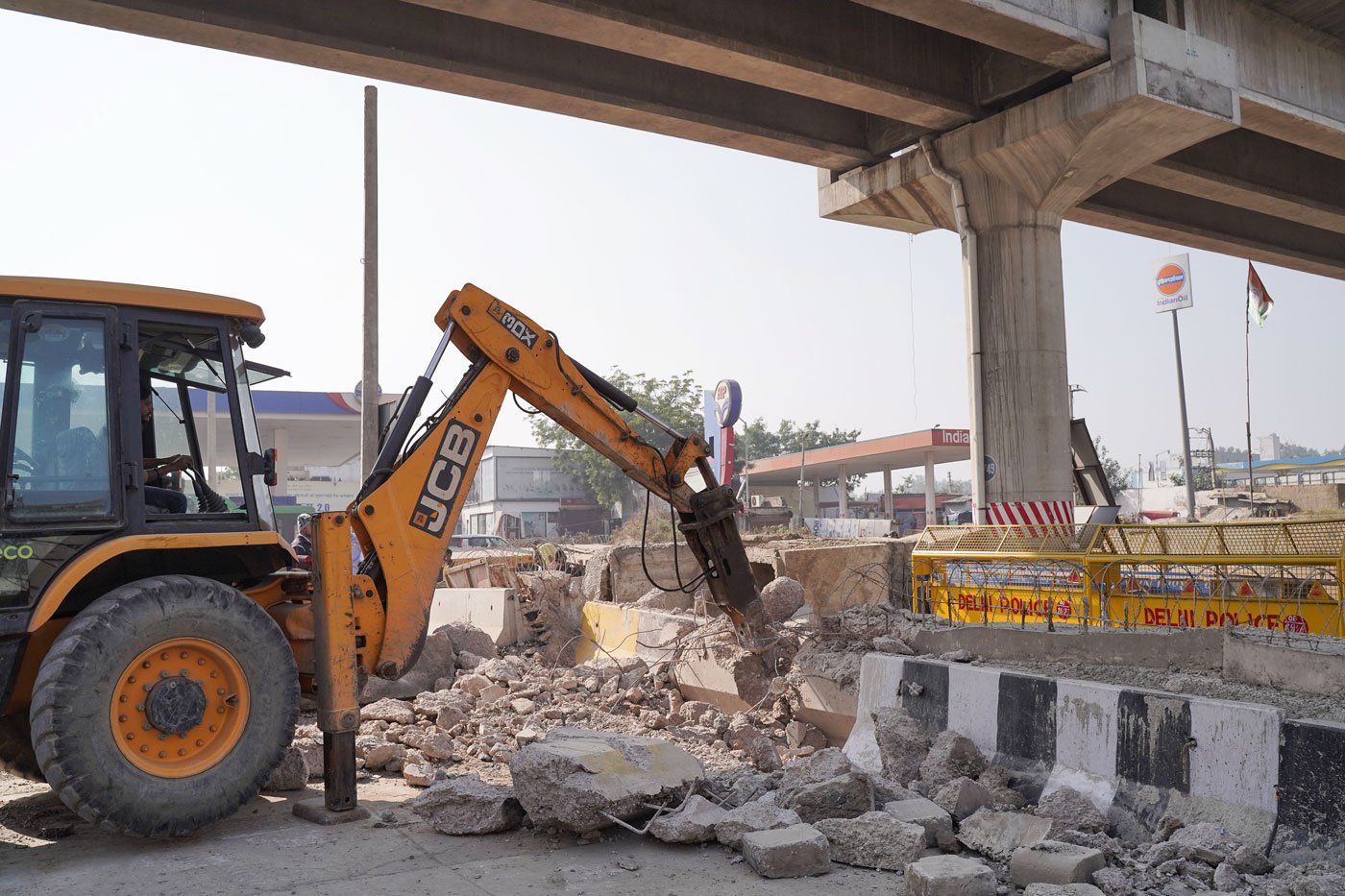
Not far from a union stage, there was a JCB machine breaking the boulders that had been placed there last year to stop the farm protesters from entering Delhi
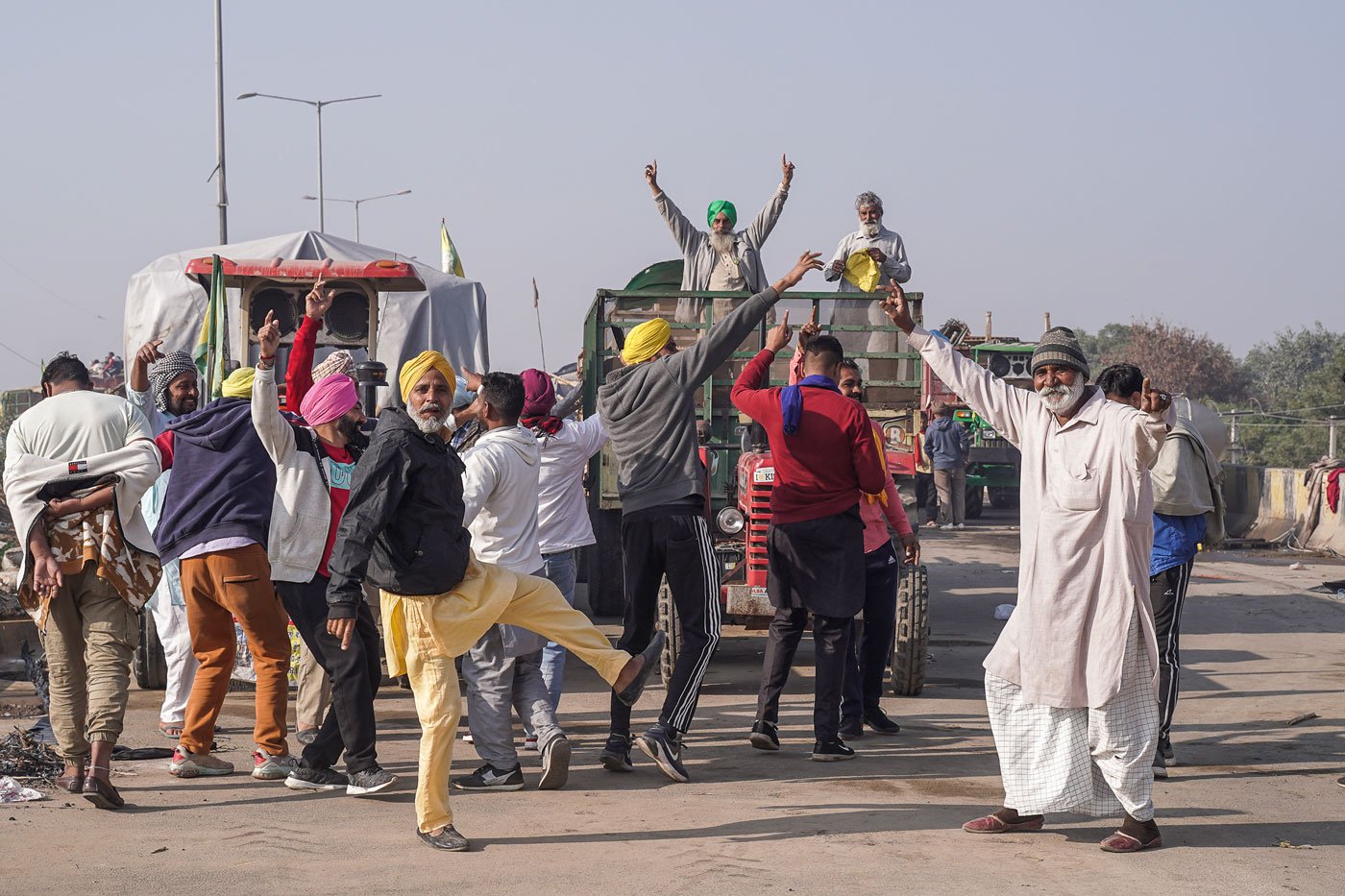
Protesting farmers from Bhaloor village of Moga district in Punjab celebrating their victory
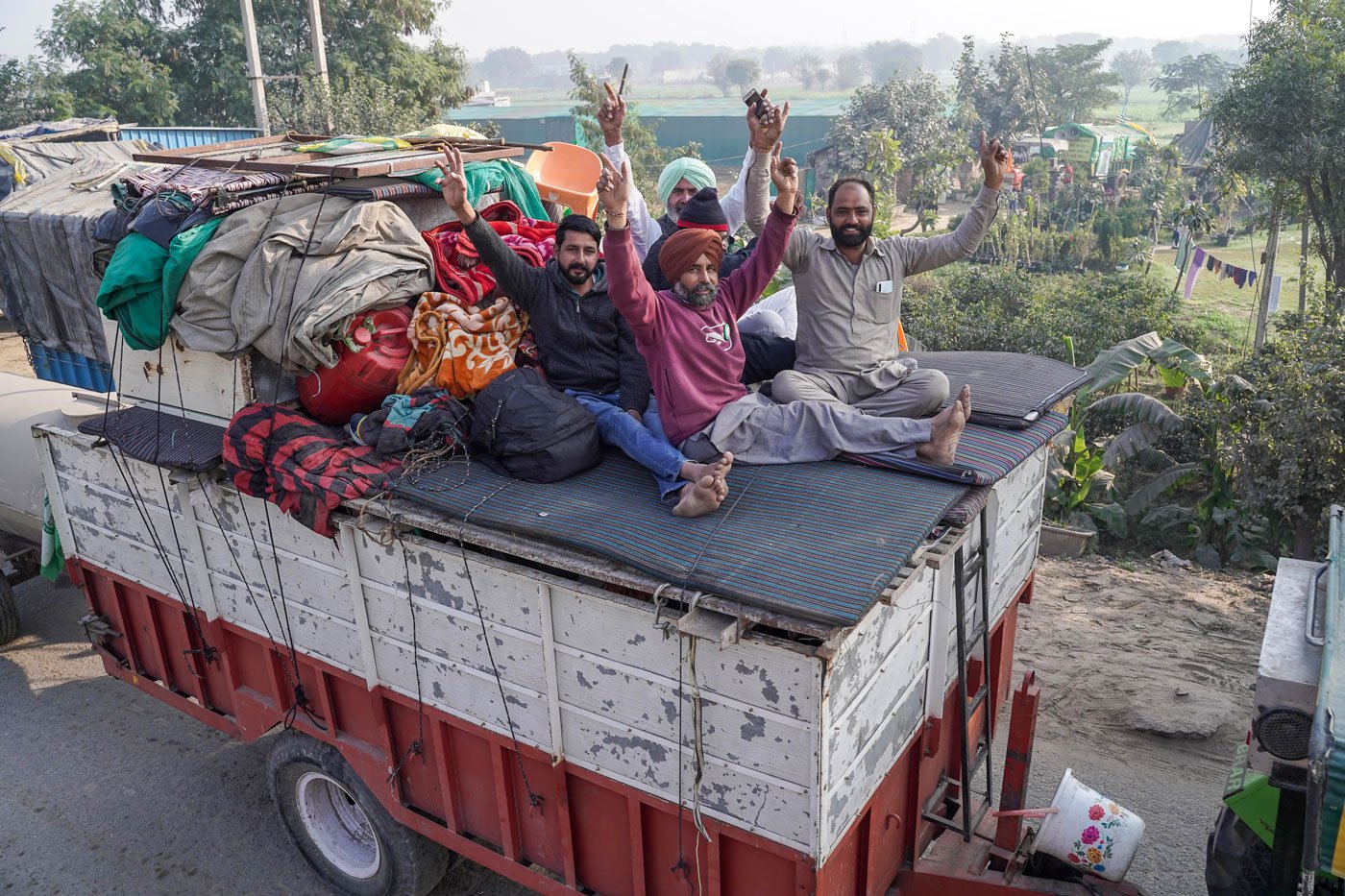
In their tractor-trolleys, trucks and cars on the Rohtak road, returning to their villages on the morning of December 11
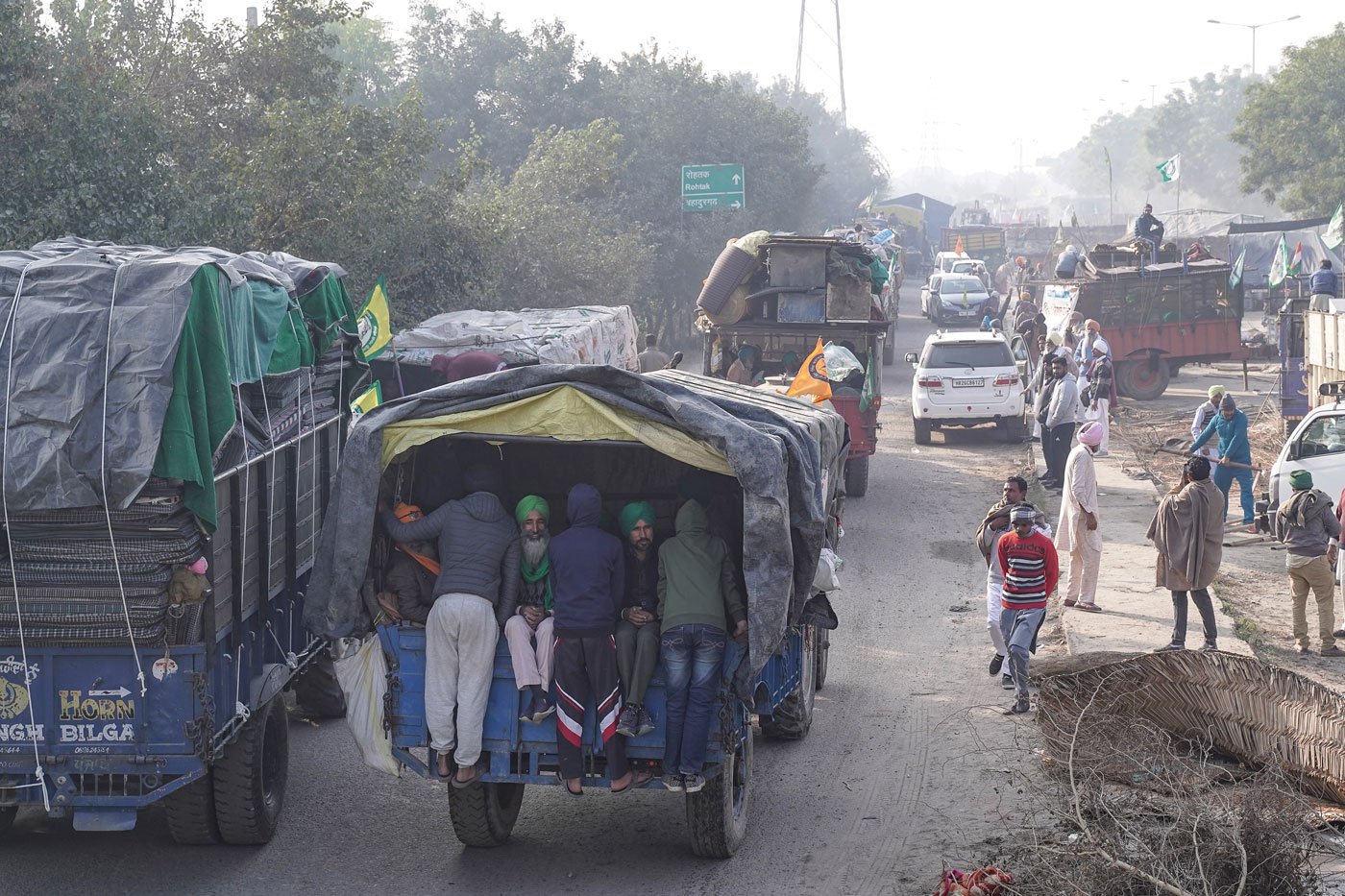
As the farmers' vehicles made their way home, the Haryana police had been deployed to manage the traffic
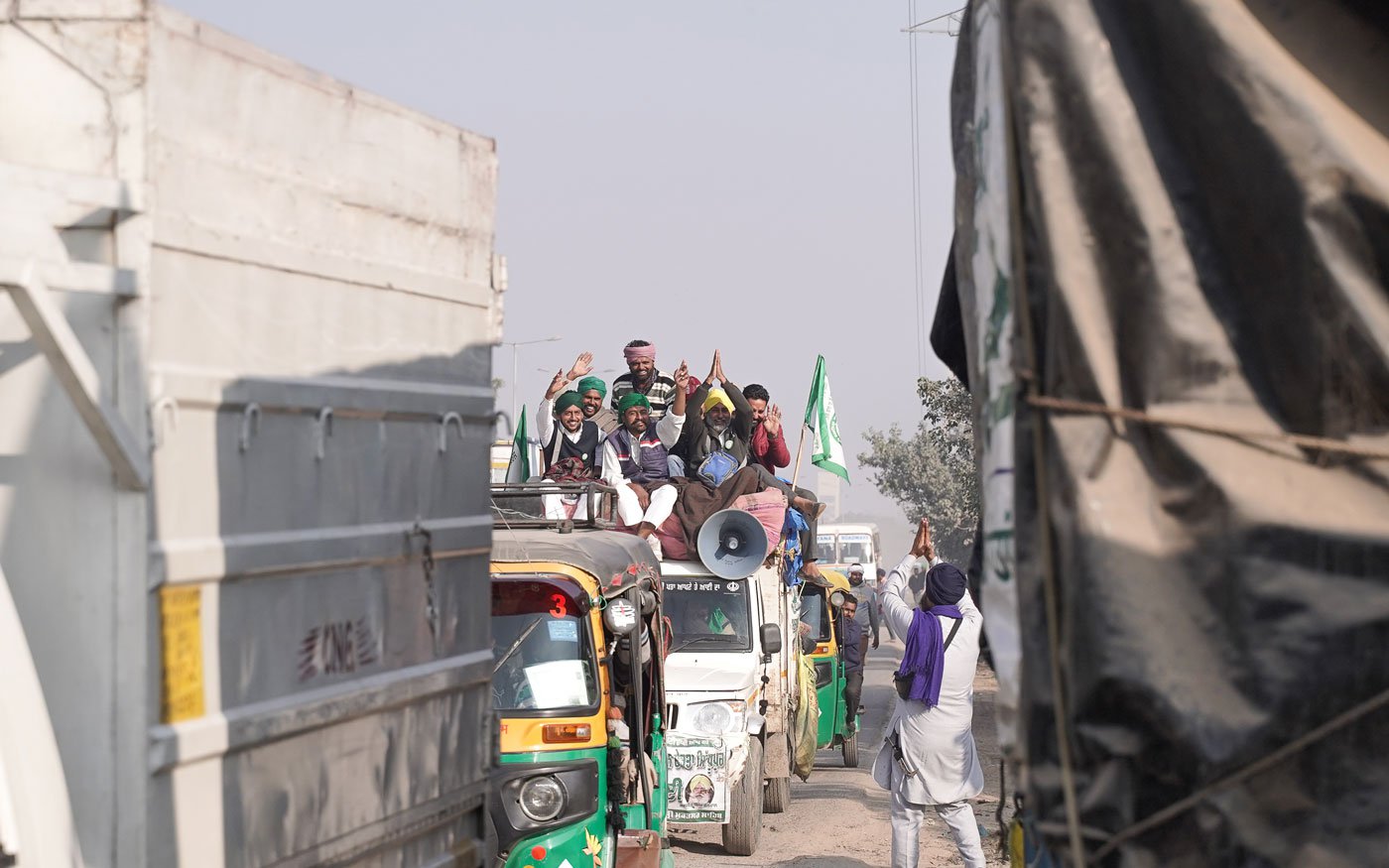
Celebratory greetings along the route
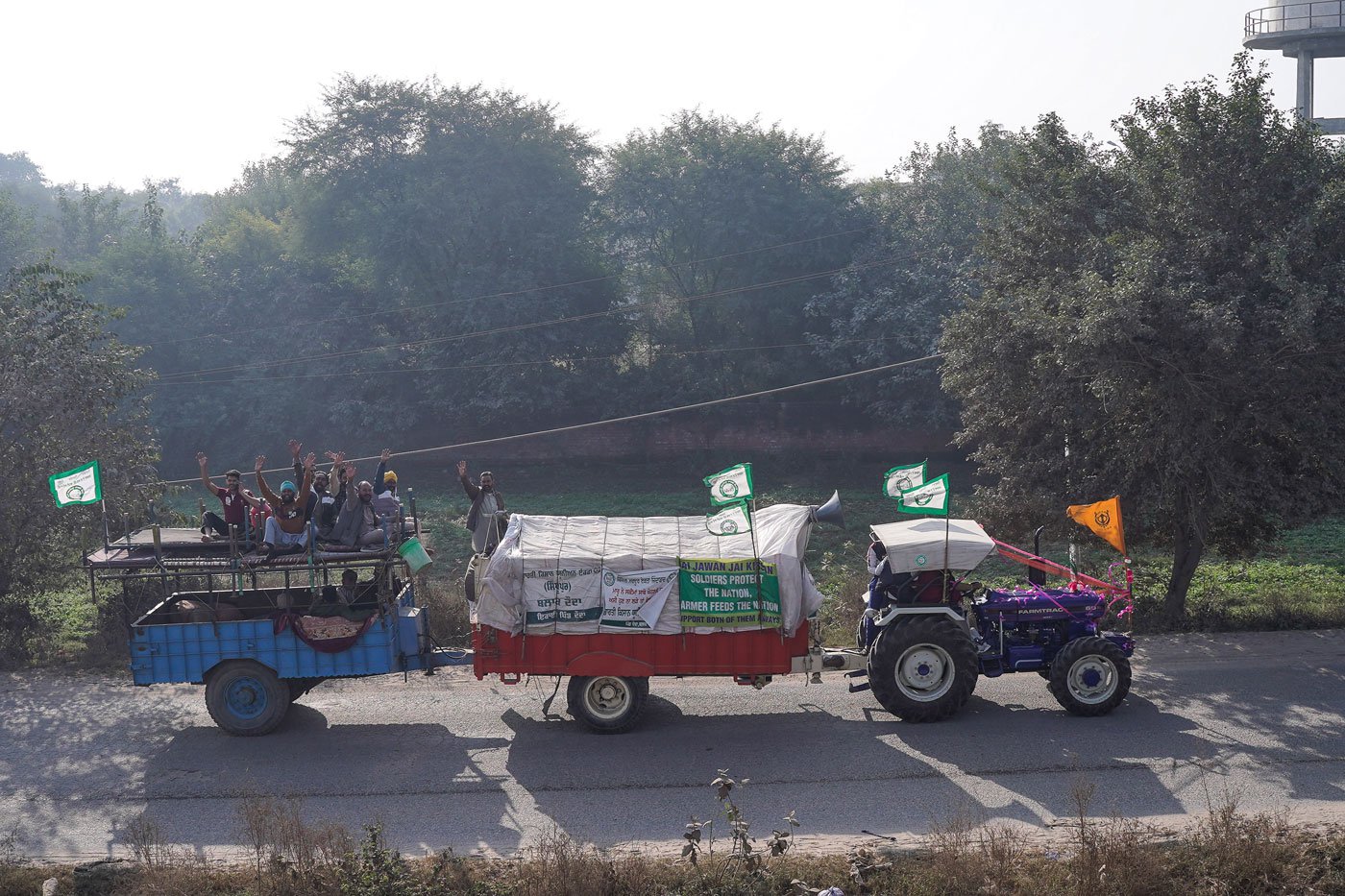
With the farmers on their way home, the protest site, which for a year had reverberated with chants of ‘Kisan Mazdoor Ekta Zindabad’, was silent. The celebrations and chants will continue to echo across the farmers’ villages – where they are determined to keep up the fight
